AI-Driven Inclusive Development and Economic Transformation
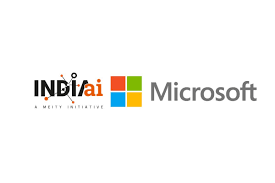
- 09 Jan 2025
In News:
IndiaAI, under the Digital India Corporation, has partnered with Microsoft to advance AI adoption in India for inclusive development and economic transformation. The collaboration focuses on skilling, innovation, AI safety, and responsible AI development, with a goal of fostering AI innovation across India, particularly in underserved rural and urban areas.
Key Highlights:
- Training 500,000 Individuals by 2026:
- Target Audience: Students, educators, developers, government officials, and women entrepreneurs.
- Goal: Empower these groups with foundational and advanced AI skills for economic opportunities and digital transformation.
- AI Catalysts (Centers of Excellence):
- Establishment of AI hubs in Tier 2 and Tier 3 cities to foster rural AI innovation.
- Objective to equip 100,000 AI innovators and developers through hackathons, community building, and creating an AI marketplace.
- AI Productivity Labs:
- Set up in 20 National Skill Training Institutes (NSTIs) across 10 states.
- Focus on training 20,000 educators and providing AI education to 100,000 students in 200 Industrial Training Institutes (ITIs).
- Support for Startups:
- Microsoft’s Founders Hub program will provide Azure credits, business resources, and mentorship to 1,000 AI startups in India, boosting innovation and growth in the Indian startup ecosystem.
- Development of Indic Language Models:
- Work on creating foundational AI models with support for Indic languages to address India’s linguistic diversity and cultural needs.
- AI Safety Institute:
- Focus on building frameworks, standards, and evaluation metrics for responsible AI development.
- Support for the creation of an AI Safety Institute in India to promote ethical and safe AI practices.
- Infrastructure & Research:
- Microsoft will also focus on enhancing cloud infrastructure and support for AI research through Microsoft Research India.
- AI-driven solutions will be developed for critical sectors like healthcare, education, and agriculture.
Investment and Strategic Goals:
- $3 Billion Investment:
- Microsoft has pledged $3 billion to expand AI and cloud infrastructure in India over the next 2 years. This investment will focus on:
- Building scalable infrastructure for AI applications.
- Enhancing cloud services and AI capabilities.
- Establishing new data centers across India, supporting the AI-first agenda.
- Microsoft has pledged $3 billion to expand AI and cloud infrastructure in India over the next 2 years. This investment will focus on:
- AI Skill Development:
- 10 million people will be trained over the next five years in AI skills, empowering the Indian workforce to adapt to AI technologies, driving job creation and economic growth.
- AI in India’s Economy:
- India aims to become a global leader in AI, with AI-powered solutions contributing to diverse sectors like finance, e-commerce, and manufacturing.
- Focus on economic growth through AI-powered industries and fostering entrepreneurship in underserved communities.
AI Technologies and Applications:
- Artificial Intelligence (AI) involves machines performing tasks that require human intelligence like decision-making, problem-solving, and learning from data.
- Machine Learning (ML): AI systems improve through data without being explicitly programmed.
- Natural Language Processing (NLP): AI systems understand and respond to human language.
- Computer Vision: AI systems analyze and interpret visual information.
- Robotics: AI powers automated tasks through robots in industries like manufacturing and healthcare.
- Cloud Infrastructure enables the scaling of AI systems:
- Cloud Computing provides on-demand access to computing power, essential for AI tasks requiring large amounts of data and processing power.
- Data Centers host AI models and data, and cloud services such as Microsoft Azure will support AI startups and businesses.
Expected Impact and Benefits:
- Inclusive AI Development: Focus on empowering women, students, and rural innovators to bridge the digital divide and promote economic empowerment.
- Startup Ecosystem: The collaboration will foster a robust AI startup ecosystem, promoting innovation and entrepreneurship through AI tools, Azure credits, and mentorship.
- Skill Development & Education: AI-driven skill training initiatives will prepare millions of individuals for the jobs of the future, particularly in the AI-driven economy, and support education reform.
- AI for Critical Sectors: Development of AI-enabled solutions to address challenges in sectors such as healthcare, education, and agriculture, driving social impact and economic growth.
Section 479 of the BNSS 2023

- 08 Jan 2025
In News:
Centre urges states, UTs to ensure undertrial prisoner relief in jails.
Key Highlights:
- Objective: The MHA has urged states and Union Territories (UTs) to implement provisions of Section 479 of the Bharatiya Nagarik Suraksha Sanhita (BNSS) 2023 to provide relief to undertrial prisoners (UTPs) in jails. This initiative aims to address issues such as long detention and overcrowding in prisons.
Key Provisions of Section 479 of BNSS, 2023
- Purpose: To offer relief to undertrial prisoners by mandating their release on bail or bond under specific conditions.
- Key Provisions:
- Subsection (1):
- Release on Bail: UTPs who have served half the maximum sentence for their offense (except offenses punishable by death or life imprisonment) are eligible for release on bail.
- Release on Bond for First-Time Offenders: First-time offenders, who have served one-third of the maximum sentence, are eligible for release on bond by the court.
- Subsection (3):
- Mandatory Application: It is the responsibility of the prison superintendent to apply to the concerned court for the release of eligible prisoners on bail or bond.
- Subsection (1):
- Superintendent’s Role:
- Prison superintendents are mandated to ensure timely applications for bail or bond are filed for eligible UTPs.
Implementation and Reporting
- MHA’s Advisory:
- On January 1, the MHA issued a letter to the Chief Secretaries, Director Generals, and Inspectors General of prisons in all states and UTs to ensure compliance with the provisions of Section 479 of BNSS.
- States and UTs were instructed to report the status of implementation in a prescribed format starting from January 1, 2025.
- Data to be Reported:
- First-Time UTPs: Number of first-time UTPs who have served one-third of their maximum sentence.
- Court Applications: Number of applications for bail filed by jail superintendents.
- Release on Bail: Number of UTPs released on bond or bail after meeting the eligibility criteria.
- Other UTPs: Number of UTPs who have completed half of their sentence, and the number of applications filed for their release.
- MHA’s Campaign:
- Launched on Constitution Day (November 26), this campaign encouraged states and UTs to identify eligible prisoners and file their bail applications, thus helping to reduce overcrowding in prisons and mitigate long-term detention.
Background and Context
- Why Section 479?
- Section 479 aims to reduce the prolonged detention of undertrials, some of whom may have already served significant portions of their maximum sentences. This will not only alleviate overcrowding in prisons but also expedite justice for prisoners who have spent extended periods in jail awaiting trial.
- Earlier MHA Initiatives:
- Prior to this directive, the MHA had issued an advisory on October 16, 2024, encouraging states and UTs to implement Section 479. A special push was also made during Constitution Day to move applications for the release of eligible prisoners.
- Expected Outcome:
- The measures are expected to significantly ease the challenges of overcrowded jails and provide timely relief to undertrials, especially first-time offenders. By enforcing these provisions, the government seeks to improve the judicial process for UTPs and contribute to a more effective and humane criminal justice system.
National Sports Awards 2024
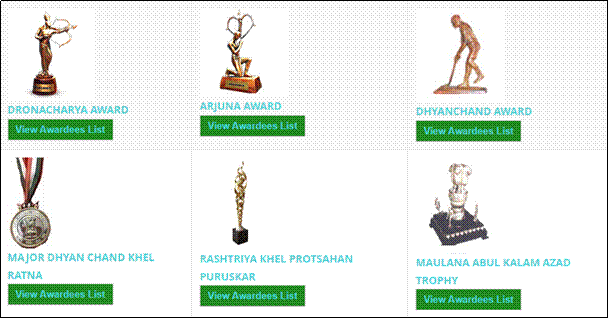
- 06 Jan 2025
In News:
The National Sports Awards 2024 were recently announced by the Ministry of Youth Affairs & Sports to celebrate excellence in Indian sports.
Key Highlights:
Major Dhyan Chand Khel Ratna Award
- This is India's highest sporting honor, renamed in 2021 after hockey legend Major Dhyan Chand.
- It’s awarded for exceptional performance in sports over a four-year period.
- 2024 Winners:
- Gukesh D (Chess)
- Harmanpreet Singh (Hockey)
- Praveen Kumar (Para-Athletics)
- Manu Bhaker (Shooting)
- The award includes a cash prize of Rs 25 lakh.
Arjuna Award
- Recognizes outstanding performance in sports over the previous four years and attributes like leadership, discipline, and sportsmanship.
- 2024 Winners: Various athletes across multiple disciplines received this honor.
Arjuna Award (Lifetime)
- Given to retired athletes who have not only excelled during their careers but also contributed to the promotion of sports post-retirement.
- 2024 Winners:
- Shri Sucha Singh (Athletics)
- Shri Murlikant Rajaram Petkar (Para-Swimming)
Dronacharya Award
- Given to coaches who have made a consistent and significant contribution by guiding sportspersons to excel at international events.
- The award includes a bronze statue of Dronacharya, a certificate, and a cash prize.
Maulana Abul Kalam Azad (MAKA) Trophy
- Awarded to the top-performing university in the Khelo India University Games.
- 2024 Winner: Chandigarh University.
Rashtriya Khel Protsahan Puruskar
- Recognizes individuals or organizations for their contribution to the promotion and development of sports.
- 2024 Winner: Physical Education Foundation of India.
These awards were selected by a committee led by Justice (Retd.) V. Ramasubramanian and include eminent sportspersons, journalists, and sports administrators. The winners will receive their awards from the President of India, marking a prestigious moment in Indian sports.
National e-Governance Awards (NAeG) Scheme 2025
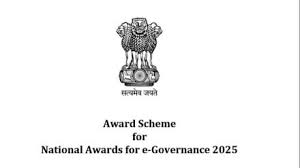
- 03 Jan 2025
In News:
- The Department of Administrative Reforms & Public Grievances (DARPG) has issued the guidelines for the 28th National e-Governance Awards (NAeG) 2025.
- Nominations for the awards can be submitted online via the official portal: www.nceg.gov.in.
Key Highlights:
- Award Categories: Nominations for the awards can be submitted under the following six categories:
- Government Process Re-engineering: Digital transformation through the use of technology to improve government processes.
- Innovation by Use of AI and New Age Technologies: Fostering citizen-centric services via artificial intelligence and other modern technologies.
- Best e-Gov Practices in Cyber Security: Recognizing excellence in e-Governance practices focused on cybersecurity.
- Grassroot Level Initiatives: Initiatives at the Districts, ULBs (Urban Local Bodies), or Gram Panchayats that deepen service delivery.
- Replication and Scaling Up of Successful Projects: Projects awarded in the past (such as NAeG or Prime Minister’s Awards) that have been successfully replicated or scaled.
- Digital Transformation using Data Analytics: Projects that leverage data analytics on digital platforms for enhancing governance.
- Eligibility: The awards are open to Central Ministries/Departments, State Governments, District Collectors, Research Institutions, and other relevant entities.
- Award Details:
- The NAeG 2025 will feature 16 awards:
- 10 Gold Awards.
- 6 Silver Awards.
- The NAeG 2025 will feature 16 awards:
- Incentives:
- Gold Award winners will receive a Trophy, Certificate, and an incentive of Rs 10 lakh.
- Silver Award winners will receive a Trophy, Certificate, and an incentive of Rs 5 lakh.
- The incentive will be used for further implementation of the awarded projects or bridging resource gaps in public welfare.
- Objective: The goal of the National Awards for e-Governance is to recognize and promote excellence in the implementation of e-Governance initiatives and digital transformation efforts across India.
Viksit Panchayat Karmayogi Initiative
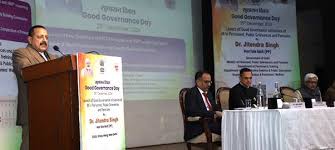
- 26 Dec 2024
In News:
On Good Governance Day, commemorating the 100th birth anniversary of former Prime Minister Atal Bihari Vajpayee, Dr. Jitendra Singh, the Union Minister of State for various departments, launched the ‘Viksit Panchayat Karmayogi’ initiative. This initiative is part of the broader ‘Prashasan Gaon Ki Aur’ campaign, which aims to empower Panchayati Raj Institutions (PRIs) at the grassroots level by enhancing the capacity and competence of elected representatives and officials.
Objective of the ‘Viksit Panchayat Karmayogi’ Initiative
The initiative seeks to strengthen PRIs by providing innovative tools and frameworks for capacity building and participatory governance. It will focus on equipping local leaders and officials with the necessary knowledge and tools to make effective decisions and implement sustainable development initiatives. Piloted in Odisha, Assam, Gujarat, and Andhra Pradesh, it uses e-learning platforms, AI-powered chatbots, and mobile apps to address knowledge gaps and improve service delivery at the local level. This program aligns with the government's mission to decentralize governance and promote citizen-centric and equitable development across rural India.
Other Key Initiatives Launched on Good Governance Day
- iGOT Karmayogi Platform Dashboard: A new dashboard on the iGOT Karmayogi platform, which empowers ministries, departments, and state administrators to monitor progress in capacity-building efforts. The enhanced dashboard includes customizable views, robust data filtering tools, and insights to optimize decision-making, marking the introduction of the 1600th e-learning course. This development is part of the Mission Karmayogi initiative to strengthen the civil service through continuous learning.
- CPGRAMS Annual Report 2024: The CPGRAMS Annual Report provided a review of the Centralized Public Grievance Redress and Monitoring System (CPGRAMS). This platform has been instrumental in resolving over 25 lakh grievances annually, leveraging advanced technologies and multilingual support. The report also highlighted the implementation of the Grievance Redressal Assessment and Index (GRAI), which has improved transparency, accountability, and the efficiency of public service delivery.
- Single Simplified Pension Application Form: A new digital pension system was launched, combining nine separate pension forms into a single, streamlined application. This digital transformation integrates e-HRMS with Bhavishya, reducing processing time and ensuring timely pension disbursement with real-time tracking and Aadhaar-based e-signatures. This system enhances the user experience for pensioners, making the process more efficient and transparent.
- Compendium of Pension Related Instructions 2024: Dr. Singh introduced a comprehensive Compendium of updated rules, procedures, and guidelines related to pensions. This document serves as a reference for pensioners and administrative personnel, ensuring clarity in the pension process and aligning with the government's vision of simplifying and streamlining pension systems.
Good Governance Day 2024 (Sushasan Diwas)
- Observed on: December 25 annually, marking the birth anniversary of Atal Bihari Vajpayee (1924–2018).
- Introduced in 2014: By the Bharatiya Janata Party (BJP) government under Prime Minister Narendra Modi.
- Purpose: To honor Vajpayee's contribution and promote good governance practices in India.
- Objective of Good Governance Day:
- Promote Government Accountability: Ensuring government actions and services are transparent and citizens benefit equally.
- Instill Good Governance Values: Encourages civil servants to practice effective and responsible governance.
- Bridge the Gap: Between citizens and the government through active participation.
- Theme for 2024: "India’s Path to a Viksit Bharat: Empowering Citizens through Good Governance and Digitalisation."
Railways (Amendment) Bill, 2024
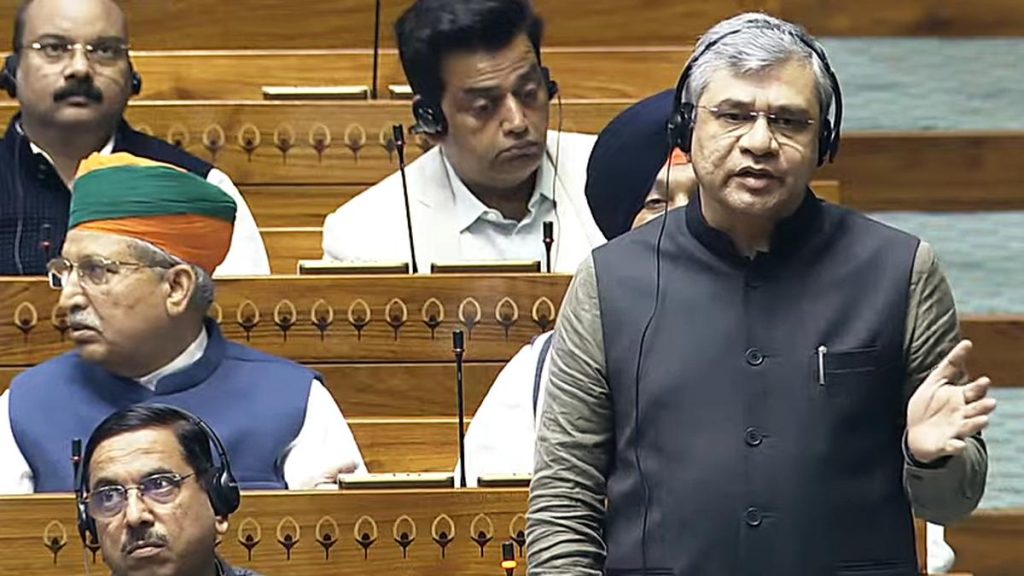
- 12 Dec 2024
In News:
The Railways (Amendment) Bill, 2024 was passed in the Lok Sabha on December 20, 2024, aiming to enhance the functioning and autonomy of Indian Railways.
Key Provisions:
- Repeal of the Indian Railway Board Act, 1905: The Bill repeals the 1905 Act and incorporates its provisions into the Railways Act, 1989, simplifying the legal framework by reducing the need to refer to two separate laws.
- Statutory Backing for Railway Board: The Bill provides statutory backing to the Railway Board, which previously lacked such a legal mandate. It grants the Union government the authority to determine the number of members, their qualifications, terms, and conditions of service.
- Decentralization of Power: The Bill aims to decentralize decision-making, granting greater autonomy to regional railway zones. This shift will allow more independence in budgeting, infrastructure projects, and recruitment, addressing long-standing calls for improved regional empowerment.
- Independent Regulator: The Bill proposes the creation of an independent regulator for overseeing tariffs, safety, and private sector participation. This idea has been supported by previous expert committees to encourage greater competition and transparency in the sector.
- Fast-Tracking Infrastructure and Services: The Bill will streamline approvals for new train services and infrastructure projects, helping meet demands from underserved regions, particularly in states like Bihar.
Objectives:
- Modernization of the Legal Framework: By incorporating the provisions of the 1905 Act into the 1989 Act, the Bill aims to simplify and modernize the legal architecture governing the railways.
- Empowerment of Railway Zones: Autonomy for railway zones is seen as a key step towards improving efficiency and accountability in operations.
- Private Sector Participation: The establishment of an independent regulator is expected to promote private participation in the railway sector, aligning with international standards.
Historical Context:
- The Indian Railways Act, 1890 established the foundations for Indian Railways as a government entity, which was further refined with the Indian Railway Board Act, 1905.
- This Bill aligns with recommendations from previous committees, including the Sreedharan Committee (2014) and the Committee on Restructuring Railways (2015), which have called for greater decentralization and autonomy for railway zones, as well as an independent regulatory body.
Challenges and Proposed Reforms:
- Financial Sustainability: The railways face challenges such as high operating costs, particularly from salaries and pensions, and losses in the passenger segment. Suggestions to improve finances include rationalizing passenger fares, enhancing freight revenue, and attracting private investment in infrastructure.
- Efficient Freight Operations: The Bill also addresses concerns about network congestion, especially for freight operations, and aims to increase the competitiveness of freight transport by improving infrastructure and reducing cross-subsidies from passenger fares.
Recommendations of various Committees on reforming the Railways
Regulatory Structure for Railway Sector
- Set up independent regulator to fix tariffs, promote competition, and protect consumer interests
Organisational structure of Indian Railways
- Corporatisation of Indian Railways
- Reorganise Railway Board to reflect a corporate business structure
- Envision the Railway Board as a policymaker alone
- Provide zones with full financial autonomy
Operations
- Separate core and non-core business (hospitals, schools, catering and security) of the Railways
- Permit private participation in some railway operations
Finances
- Clearly define social obligations and commercial business roles
- Restructure accounting procedure to reflect zone and route-wise profit and loss statements6,7,9
- Develop PPP models to attract private participation in: (i) developing and maintaining stations/ terminals, (ii) leasing of wagons, (iii) freight train operations, (iv) manufacturing of rolling stock, and (v) running non-core business operations
- Monetise railway assets
- Rationalise passenger tariffs
Regulatory Structure for Railway Sector
- Set up independent regulator to fix tariffs, promote competition, and protect consumer interests
Organisational structure of Indian Railways
- Corporatisation of Indian Railways
- Reorganise Railway Board to reflect a corporate business structure
- Envision the Railway Board as a policymaker alone
- Provide zones with full financial autonomy
Operations
- Separate core and non-core business (hospitals, schools, catering and security) of the Railways
- Permit private participation in some railway operations
Finances
- Clearly define social obligations and commercial business roles
- Restructure accounting procedure to reflect zone and route-wise profit and loss statements6,7,9
- Develop PPP models to attract private participation in: (i) developing and maintaining stations/ terminals, (ii) leasing of wagons, (iii) freight train operations, (iv) manufacturing of rolling stock, and (v) running non-core business operations
- Monetise railway assets
- Rationalise passenger tariffs
Reforms in Merchant Shipping
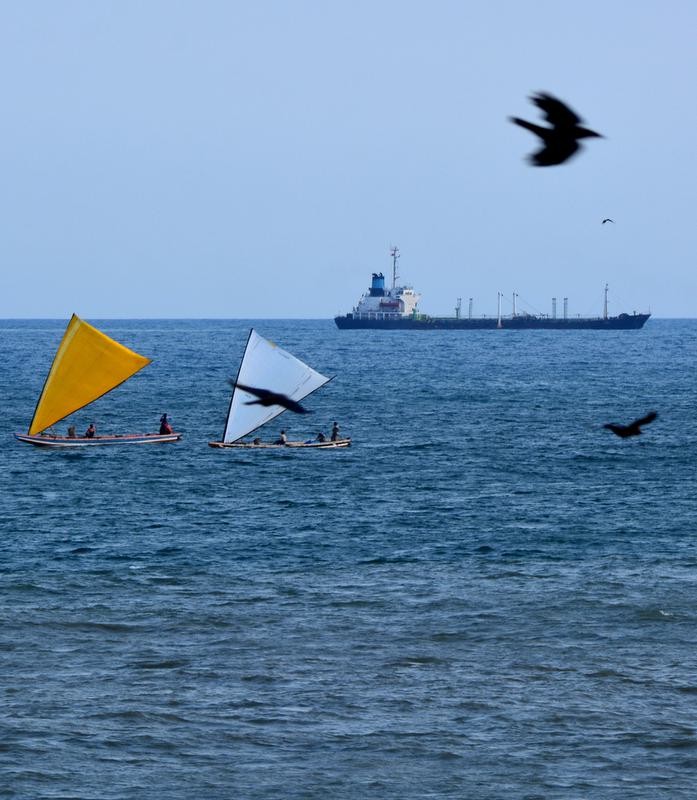
- 10 Dec 2024
In News:
The Government is preparing to introduce several significant bills aimed at driving much-needed reforms in the shipping industry. Key among them are the Merchant Shipping Bill, 2024 and the Coastal Shipping Bill, 2024, both of which promise to bring transformative changes to boost the sector.
Context and Need for Reforms:
- Outdated Framework: The Merchant Shipping Act, 1958, and the Coasting Vessels Act, 1838, fail to address the current needs of the shipping sector, particularly offshore vessels.
- Regulatory Gaps: Inadequate regulation of offshore vessels, maritime training institutions, and welfare provisions for seafarers on foreign-flagged ships.
- Global Alignment: Need to align with international maritime conventions and modernize administration for competitiveness and better governance.
- Investment and Growth: Outdated laws hinder foreign investment and ease of doing business, necessitating a regulatory overhaul.
Key Features of the Merchant Shipping Bill, 2024:
- Ease of Vessel Registration:
- Reduces ownership threshold for Indian entities from 100% to 51%, enabling NRIs, OCIs, and foreign entities to invest.
- Facilitates registration of vessels chartered by Indian entities under the "bareboat charter-cum-demise" system, promoting capital-deficient entrepreneurs.
- Temporary registration provisions for vessels destined for demolition, boosting India's ship recycling industry.
- Expansion of Vessel Scope:
- Broadens the definition of "vessel" to include all types of mechanized and non-mechanized crafts, such as submersibles, hydrofoils, and Mobile Offshore Units (MOUs).
- Ensures comprehensive regulatory oversight, particularly in the offshore sector, enhancing transparency and safety.
- Coastal Security:
- Strengthens coastal security by empowering authorities to issue instructions to all types of vessels, addressing vulnerabilities highlighted by incidents like the 26/11 Mumbai attacks.
- Marine Pollution Measures:
- Incorporates global standards like the MARPOL convention to address marine pollution.
- Introduces measures such as reducing sulphur content in marine fuel and banning single-use plastics on Indian ships.
- Launch of the ‘Swachh Sagar’ portal to ensure proper disposal of ship-generated waste.
- Seafarer Welfare:
- Expands welfare provisions to include Indian seafarers working on foreign-flagged ships, offering protections under the Maritime Labour Convention (MLC).
- Ensures better working conditions and safety standards for a growing workforce of Indian seafarers abroad.
- Maritime Training Regulations:
- Establishes a legal framework to regulate maritime training institutions, addressing the rise of unauthorized institutes post-liberalization.
- Ensures standardized, high-quality education and eliminates fraudulent practices.
Coastal Shipping Bill, 2024:
- Focus on Commercial Utilization of Coastal Waters:
- Distinguishes between the technical regulation of ships and the commercial utilization of Indian coastal waters.
- Aims to streamline licensing, operations, and coastal planning, enhancing the integration of inland and coastal shipping.
- Alignment with ‘Sagarmala’ Program: Supports the promotion of coastal shipping through better infrastructure and connectivity, in line with the government's ‘Sagarmala’ initiative, which boosts port connectivity and coastal trade.
International Conventions India Has Ratified:
- MARPOL: Focuses on preventing ship-based pollution.
- Maritime Labour Convention (MLC): Protects seafarers' rights and ensures fair working conditions.
- Bunker Convention: Addresses liability for oil pollution damage.
- Wreck Removal Convention: Mandates safe removal of shipwrecks.
- Civil Liability Convention: Establishes liability for oil pollution incidents.
Significance of the Reforms:
- Modernized Framework: Aligns India’s maritime laws with global standards for enhanced competitiveness.
- Economic Growth: Encourages foreign investment and entry into the shipping sector by removing regulatory barriers.
- Environmental Sustainability: Focus on combating marine pollution and ensuring sustainable shipping practices.
- Enhanced Safety and Security: Strengthens coastal security and ensures stringent safety regulations for vessels.
- Seafarers’ Welfare: Extends benefits and protections to Indian seafarers working globally, ensuring better working conditions.
- Maritime Education: Provides a robust regulatory framework to ensure high-quality, standardized maritime training.
Development Initiatives for North East Region (NER)
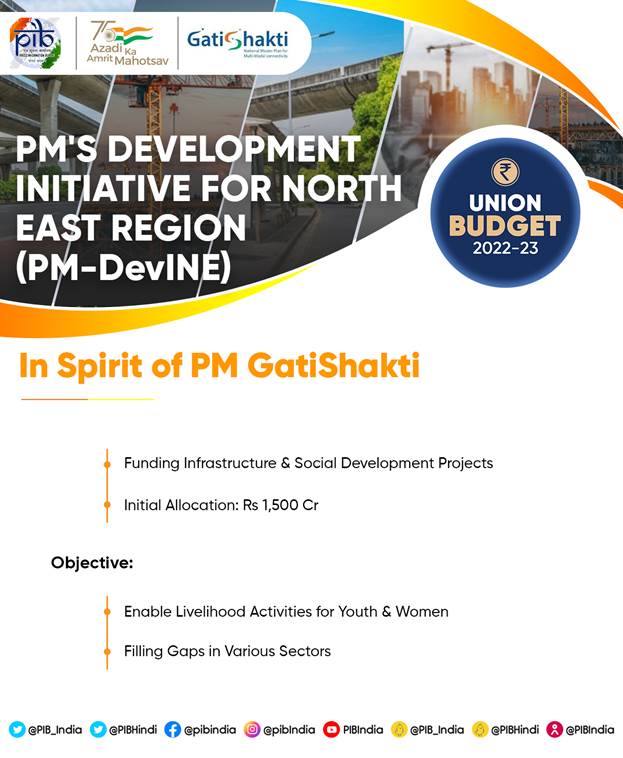
- 07 Dec 2024
In News:
Prime Minister’s Development Initiative for North East Region (PM-DevINE) was announced as a new Central Sector scheme, with 100% Central funding in the Union Budget 2022-23 with initial outlay of Rs.1500 crore.
PM-DevINE Scheme:
- Launched in 2022 as a Central Sector scheme, with 100% Central funding.
- Initial outlay: Rs. 1500 crore in the Union Budget 2022-23.
- Total outlay: Rs. 6600 crore for the period from FY 2022-23 to FY 2025-2026, approved by the Union Cabinet on 12 October 2022.
- Objectives:
- Fund infrastructure projects in the spirit of PM Gati Shakti.
- Support social development projects tailored to the felt needs of the NER.
- Enable livelihood opportunities for youth and women.
- Address development gaps in various sectors.
- 35 projects worth Rs. 4857.11 crore have been sanctioned under the scheme up to 30 November 2024, including 7 projects from the Union Budget 2022-23.
Industrialization Initiatives:
- North East Industrial Development Scheme (NEIDS):
- Launched on 1 April 2017, ended on 31 March 2022.
- Aimed at promoting industrialization in the NER.
- UNNATI Scheme:
- Launched on 9 March 2024 for enhancing regional infrastructure and promoting industrial growth.
- Provides specific incentives to industries, including:
- Capital Investment Incentive.
- Capital Interest Subvention.
- Manufacturing & Services Linked Incentive.
Budgetary Allocation for NER Development:
- Non-exempt Union Ministries/Departments are mandated to allocate at least 10% of their annual Gross Budgetary Allocation towards NER development.
- Between 2019-20 and 2023-24, these Ministries/Departments have incurred Rs. 3,53,412 crore towards the development of NER.
Role of State Governments and Central Support:The Government of India supplements state efforts with various schemes to promote industrialization and infrastructure development in the NER.
The PM-DevINE scheme, along with initiatives like UNNATI and the allocation of substantial funds by the central government, aims to accelerate the holistic development of NER. These efforts focus on infrastructure, social development, and industrialization, with specific emphasis on youth and women empowerment, ensuring long-term growth and prosperity for the region.
PMeVIDYA DTH 24x7 Channel No. 31
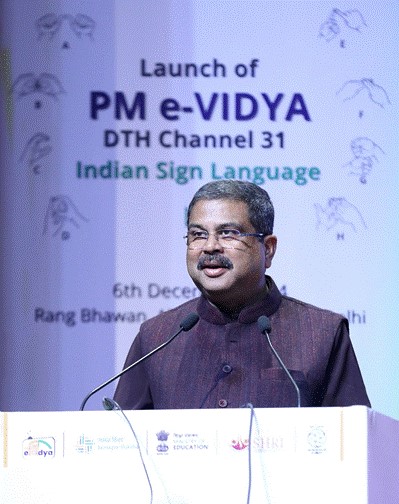
- 07 Dec 2024
In News:
Union Minister for Education, launched the PMeVIDYA DTH 24x7 Channel No. 31 dedicated to Indian Sign Language (ISL) on December 6, 2024, in New Delhi.
Channel Purpose and Vision:
- Objective: To bridge the communication gap between the hearing-impaired and hearing populations by promoting ISL.
- Significance: Channel 31 aims to unlock talent and ensure equal opportunities for all, making society more inclusive and progressive.
- ISL's Role: Pradhan emphasized the importance of alternative communication methods like ISL, which ensures that individuals with hearing impairments have equal access to education, employment, and societal participation.
Government's Focus on Inclusivity:
- Legal Framework: Pradhan highlighted the expansion of recognized disabilities from 7 to 21, making the legal framework more comprehensive.
- National Education Policy (NEP) 2020: The policy focuses on inclusive education, with particular attention to Children with Special Needs (CwSN). The NEP promotes the standardization of ISL and its inclusion in educational curricula.
- Employment and Cultural Expression: ISL is not only essential for communication but also contributes to cultural expressions like dance and drama. Pradhan emphasized that learning ISL would open employment opportunities and allow individuals to express themselves fully.
Importance of Channel 31:
- The launch of Channel 31 aligns with India’s commitment to ensuring equal rights and access to education, as enshrined in the Constitution.
- Pradhan urged for widespread adoption of ISL, ensuring that more people learn the language to better support the hearing-impaired community.
PM e-Vidya Initiative:
- Launch Date: PM e-Vidya was launched as part of the Atmanirbhar Bharat Abhiyaan on May 17, 2020, to bridge the digital divide and ensure inclusive education.
- Key Components:
- DIKSHA: A national platform providing e-content for all grades.
- DTH TV Channels: Initially started with 12 channels, now expanded to 200, offering supplementary education in multiple languages.
- SWAYAM: A platform for online courses and MOOCs for both school and higher education.
- Community Radio & Podcasts: These platforms are used for wider educational outreach, especially in rural and remote areas.
- e-Content for Teachers: Interactive videos and resources aimed at enhancing teacher education.
Channel Content:
- Channel 31 will provide 24x7 educational content for children with hearing impairments, teachers, and other stakeholders.
- The content will include school curricula, career guidance, skill training, mental health support, and promotion of ISL as a subject.
- The content will be available on YouTube, increasing its reach and accessibility.
Retired Sportsperson Empowerment Training (RESET) Programme
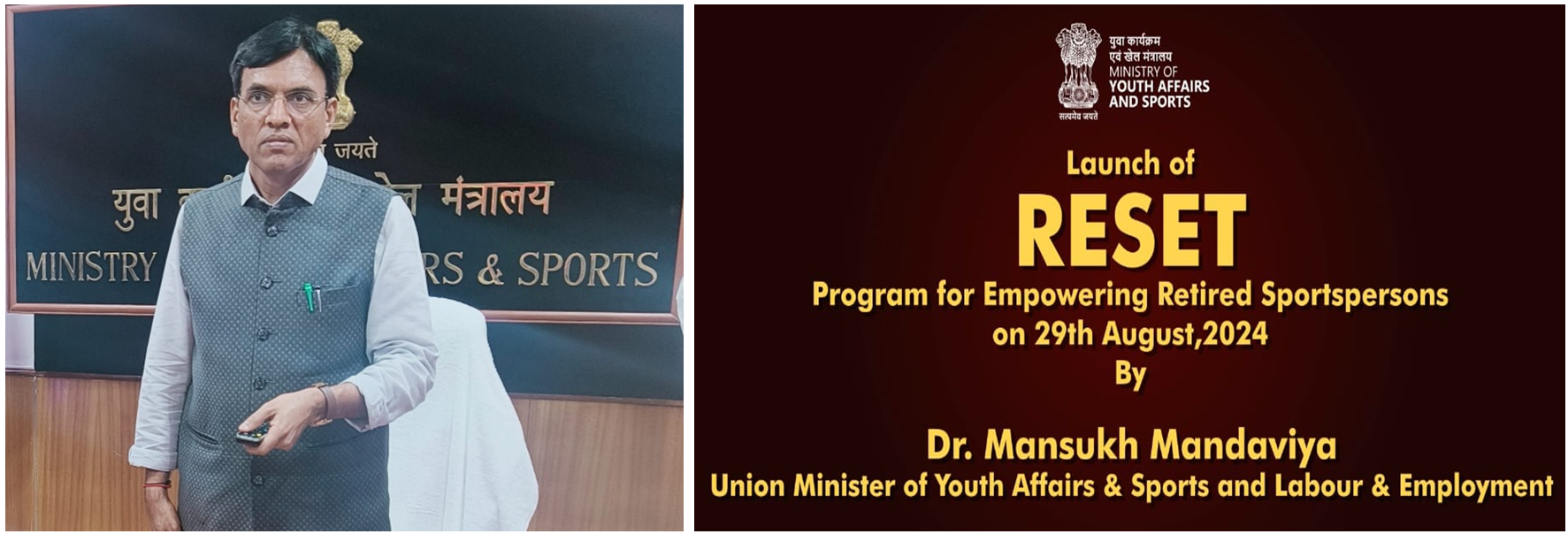
- 04 Dec 2024
In News:
At an event celebrating the National Sports Day, The Minister for Youth Affairs & Sports and Labour& Employment launched “Retired Sportsperson Empowerment Training” (RESET) Programme.
Key Highlights:
- Objective:
- Empower retired athletes through career development.
- Provide tailored education, internships, and skill enhancement.
- Address the human resource gap in the sports sector.
- Eligibility Criteria:
- Retired athletes aged 20-50 years.
- Winners of international medals or participants in international events.
- National/state-level medalists or participants in recognized competitions (e.g., National Sports Federations, Indian Olympic Association).
- Courses Offered (16 Courses):
-
- Strength & Conditioning Trainer
- Sports Nutritionist
- Sports Event Management
- Corporate Wellness Trainer
- Sports Masseur
- Sports Entrepreneurship
- Store Manager
- Fitness Centre Manager
- Physical Education Trainer
- Fitness Trainer
- Yoga Trainer
- Venue Supervisor
- Self-Defence Trainer
- Community Sports Trainer
- Camping & Trekking Guide
- Facility Caretaker
- Program Structure:
- Two levels based on educational qualifications:
- Class 12 and above
- Class 11 and below
- Hybrid learning mode:
- Self-paced learning via a dedicated portal.
- On-ground training and internships.
- Two levels based on educational qualifications:
- Internship and Placement:
- Internships offered in sports organizations, competitions, training camps, and leagues.
- Post-course placement assistance and entrepreneurial guidance.
- Implementing Agency:Lakshmibai National Institute of Physical Education (LNIPE) for the pilot phase.
- Importance:
- Provides sustainable career pathways for retired athletes.
- Utilizes the experience and skills of retired athletes to benefit future generations of athletes.
- Contributes to the growth of sports and nation-building.
- National Sports Day (29th August):
- Celebrated in honor of Major Dhyan Chand's birth anniversary.
- Promotes sports and physical fitness in India.
- Awards like Major Dhyan Chand Khel Ratna presented to honor excellence in sports.
Shahi Jama Masjid in Sambhal
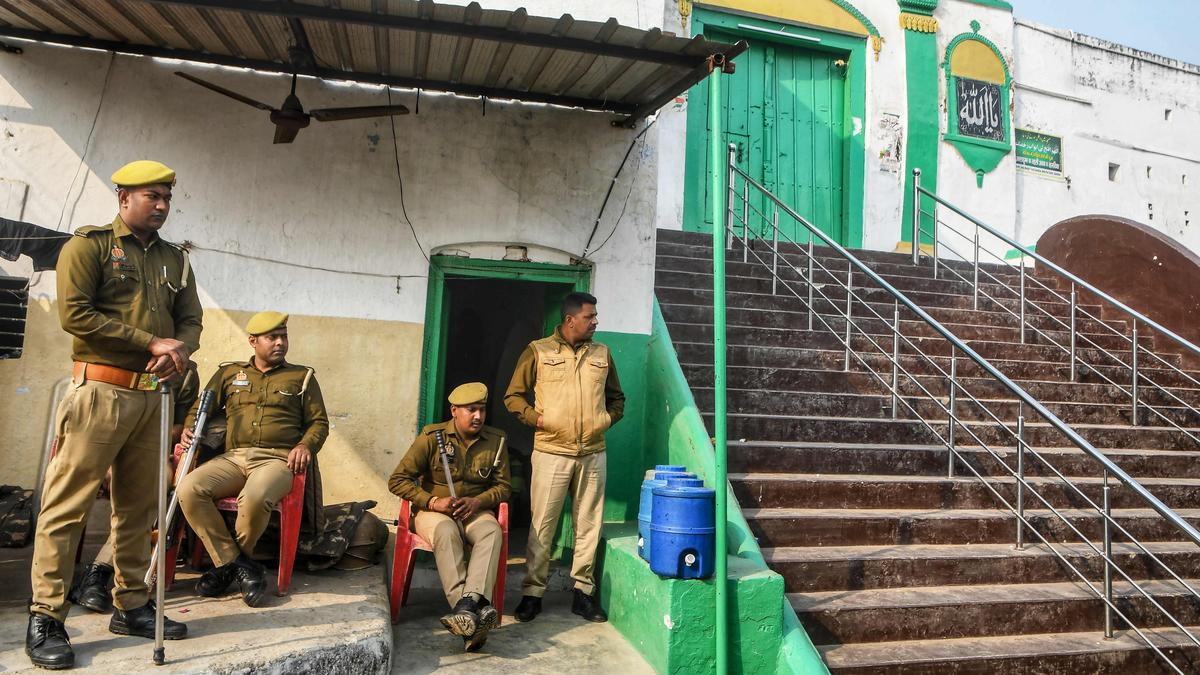
- 01 Dec 2024
In News:
The controversy surrounding the Shahi Jama Masjid in Sambhal, Uttar Pradesh, has intensified following claims that the mosque, built during the Mughal Emperor Babur's reign (1526–1530), was constructed over a Hindu temple, the Hari Har Mandir. This claim has led to legal battles and violent clashes, making it part of a broader series of disputes involving mosques built during the Mughal era, such as the Gyanvapi mosque in Varanasi and the Eidgah Masjid in Mathura.
Background and Legal Context:
The dispute began when a petition was filed in Sambhal's district court on November 19, 2024, claiming the Jama Masjid was built on the site of an ancient temple. The petitioners, led by Hari Shanker Jain, demanded a survey to ascertain the religious character of the site. This petition follows a pattern seen in similar cases in Varanasi, Mathura, and Dhar, where Hindu groups have raised similar claims about mosque sites. The court ordered a photographic and videographic survey of the mosque, which, initially carried out peacefully, later sparked violence on November 24 when the survey was accompanied by chanting crowds. This led to protests, stone pelting, and allegations of police firing, resulting in several deaths.
The Jama Masjid is a protected monument under the Ancient Monuments Preservation Act, 1904, and is listed as a Monument of National Importance by the Archaeological Survey of India (ASI). This gives the case legal and cultural sensitivity, as it involves both national heritage and religious sentiments.
Historical and Architectural Context:
The Shahi Jama Masjid in Sambhal was constructed by Mir Hindu Beg, a general under Babur, in the early 16th century. It is one of three mosques commissioned by Babur, alongside those in Panipat and Ayodhya. The mosque is noted for its architectural style, which includes a large square mihrab hall, a dome, and arches, constructed using stone masonry and plaster. Some historians argue that the mosque might be a Tughlaq-era structure modified during Babur's reign. Locally, Hindu tradition holds that the mosque incorporates elements of a Vishnu temple, believed to be the site of Kalki, the tenth avatar of Vishnu.
The Places of Worship Act, 1991:
The dispute has reignited debates about the Places of Worship (Special Provisions) Act, 1991, which mandates that the religious character of any place of worship as it existed on August 15, 1947, should be maintained, with the exception of the ongoing Babri Masjid dispute. The Act aims to prevent any further contests regarding religious sites, and Section 3 of the Act explicitly prohibits converting a place of worship into a site of a different religious denomination.
The petition filed in Sambhal seeks to alter the religious character of the mosque, directly contravening the Places of Worship Act. The petitioners have cited remarks by Supreme Court Justice D.Y. Chandrachud in 2022, suggesting that a survey to ascertain the religious character of a place might not violate the Act. This has led to petitions challenging the Act in the Supreme Court, including cases from Varanasi, Mathura, Dhar, and now Sambhal.
The Legal and Social Implications:
The ongoing dispute over the Shahi Jama Masjid highlights the tension between historical narratives, legal frameworks, and communal harmony. The Supreme Court has intervened in the matter, temporarily halting further proceedings in the trial court, urging that the mosque's management committee approach the Allahabad High Court. The Court emphasized the importance of maintaining peace and harmony and cautioned against any actions that could escalate tensions.
The case underscores the challenges of balancing India's rich historical heritage with its diverse religious communities. As the legal process unfolds, the outcome of the Sambhal dispute could set significant precedents for how similar cases are handled in the future.
Conclusion:
The Sambhal mosque dispute, much like the Gyanvapi and Ayodhya cases, brings to the forefront the complex intersections of history, religion, and law. It also raises critical questions about the application of the Places of Worship Act and its implications for preserving India's pluralistic society. The outcome of this case, alongside the pending petitions in other states, will be crucial in shaping the future of religious site disputes in India.
Grievance Redressal Assessment and Index (GRAI) 2023
- 01 Dec 2024
In News:
- It was launched by Dr. Jitendra Singh, the Union Minister of State for Science & Technology, Earth Sciences, PMO, Personnel, Public Grievances, Pensions, Atomic Energy, and Space, along with Shri V. Srinivas, the Secretary of the Department of Administrative Reforms and Public Grievances (DARPG).
- This initiative, conceptualized by DARPG, aims to evaluate and rank central Ministries and Departments based on their grievance redressal mechanisms.
Key Aspects of GRAI 2023:
- Objective: GRAI 2023 was designed to provide a comparative assessment of Ministries and Departments based on their grievance redressal systems. It was created based on recommendations from the Parliamentary Standing Committee of the Ministry of Personnel, Public Grievances, and Pensions.
- Assessment Method: The index evaluates 89 Central Ministries and Departments across four dimensions:efficiency, feedback, domain&organisational Commitment
- It is calculated using data from the Centralised Public Grievance Redressal and Management System (CPGRAMS) from January to December 2023. Ministries are grouped into three categories based on the number of grievances received in 2023:
- Group A: Ministries/Departments with more than 10,000 grievances (28 Ministries/Departments)
- Group B: Ministries/Departments with 2,000 to 9,999 grievances (33 Ministries/Departments)
- Group C: Ministries/Departments with fewer than 2,000 grievances (28 Ministries/Departments)
- Top Performers:
- Group A: The Department of Agriculture and Farmers Welfare topped the rankings.
- Group B: The Office of the Comptroller & Auditor General of India led.
- Group C: The Department of Investment & Public Asset Management ranked first.
- It is calculated using data from the Centralised Public Grievance Redressal and Management System (CPGRAMS) from January to December 2023. Ministries are grouped into three categories based on the number of grievances received in 2023:
- Analysis: GRAI 2023 includes an in-depth analysis of the root causes of effective grievance redressal for each Ministry/Department, presented in a color-coded, easily understandable format.
- Advancements: The report outlines a roadmap for improving grievance redressal, emphasizing:
- Utilization of advanced technologies such as AI and Machine Learning (ML) for predictive analytics and data analysis.
- The introduction of features like IGMS 2.0 and TreeDashboard within CPGRAMS.
- Improved training for Grievance Redressal Officers (GROs) and more rigorous audits to increase accountability.
- Expansion of CPGRAMS integration to local governments, enhancing the grievance redressal system across all levels of governance.
Commonwealth Secretariat recognized CPGRAMS as a best practice in grievance redressal at its meeting in April 2024.
E-Daakhil Portal
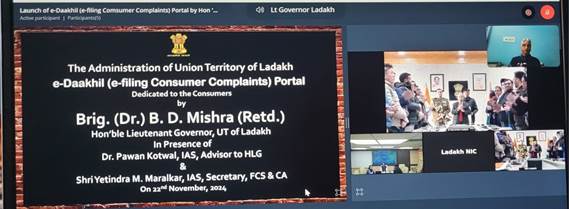
- 28 Nov 2024
In News:
- The E-Daakhil portal was launched by the Department of Consumer Affairs to promote consumer rights and ensure timely justice.
- The portal was launched nationwide with its final rollout in Ladakh on 22nd November 2024, making it operational across all states and union territories of India.
Background and Purpose:
- Introduced in September 2020, the portal was developed in response to the Consumer Protection Act 2019, which aims to address emerging consumer concerns.
- Aimed at providing a hassle-free, inexpensive, and speedy mechanism for filing consumer complaints, especially post the COVID-19 pandemic.
- E-Daakhil is an online platform that simplifies the grievance redressal process, allowing consumers to file complaints remotely, without the need for physical presence.
Portal Features:
- User-friendly interface: Simple and intuitive, allowing consumers to file and track complaints online.
- Registration process: Users can register through OTP on their mobile or an activation link via email.
- Paperless and transparent: The entire process, from filing complaints to tracking the case status, is digital and transparent.
- Consumers can file complaints, pay fees, and monitor the progress of their cases from the comfort of their homes.
Success and Impact:
- By the end of 2023, E-Daakhil was available in 35 states and union territories; with Ladakh being the latest addition in November 2024.
- Over 2.81 lakh users have registered, and 1.98 lakh cases have been filed, of which 38,453 cases have been disposed of.
Future Developments:
- E-Jagriti: A new initiative that will further streamline the case filing, tracking, and management process, reducing delays and paperwork.
- E-Jagriti aims to improve communication between parties, ensuring faster dispute resolution.
India’s First AI Data Bank

- 22 Nov 2024
In News:
The Ministry of Science and Technologyrecently launched India’s first Artificial Intelligence (AI) data bank that is aimed at propelling innovation and boosting the country’s national securityat the 7th Edition of the ASSOCHAM AI Leadership Meet 2024.
-
- The event theme: “AI for India: Advancing India’s AI Development – Innovation, Ethics, and Governance”.
Key Highlights:
- Objective:
- Propel innovation and enhance national security.
- Provide access to diverse, high-quality datasets for creating scalable and inclusive AI solutions.
- Key Features of the AI Data Bank:
- Target Audience: Researchers, startups, and developers.
- Data Types: Satellite, drone, and IoT data.
- Purpose:
- To enhance national security through real-time analytics.
- Enable predictive analytics for disaster management and cybersecurity.
Strategic Importance of AI in India:
- National Security: AI to strengthen national security by providing real-time analytics from satellite, drone, and IoT data.
- AI for Development:
- AI’s role in reshaping sectors like governance, business, healthcare, education, and space exploration.
- AI as a tool for economic growth, addressing climate change, improving public service delivery, and ensuring national security.
- Ethics and Governance:
- Ensuring responsible AI use with optimal handling.
- Addressing algorithmic bias and data privacy through robust governance frameworks.
- Commitment to transparent and fair AI systems that empower people rather than replace them.
- AI in Disaster Management and Cybersecurity:
- Aligning with India’s goals to use AI for predictive analytics in disaster management.
- Enhancing cybersecurity through AI technologies.
Government’s Vision on AI:
- Empowering Citizens: AI must bridge divides and ensure equitable access to its benefits.
- AI as Backbone for Future Development: India’s focus on making AI an integral part of its future economic and technological growth.
Bhu-Neer Portal
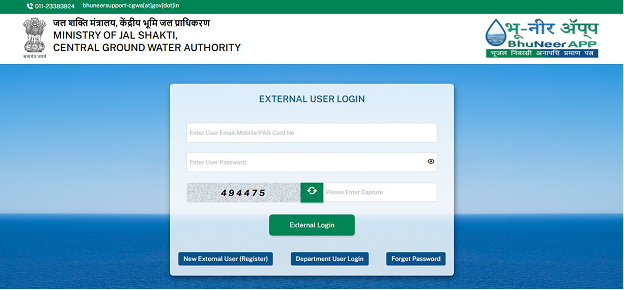
- 21 Nov 2024
In News:
- Minister of Jal Shakti, digitally launched the “Bhu-Neer” portal during the India Water Week 2024.
- Developed by the Central Ground Water Authority (CGWA), under the Ministry of Jal Shakti, in collaboration with the National Informatics Centre (NIC).
Key Highlights:
- Purpose of the Portal:
- Centralized platform for managing and regulating groundwater resources across India.
- Aims to ensure transparency, efficiency, and sustainability in groundwater usage, facilitating easier access to groundwater withdrawal permits.
Key Features:
- User-Friendly Interface: Simplified interface to streamline the application process for groundwater withdrawal.
- PAN-Based Single ID System: Allows seamless user registration, providing a unique identification for all stakeholders.
- NOC with QR Code: Enables verifiable and trackable compliance documents, ensuring authenticity.
- Improved Version: An enhanced version compared to the previous NOCAP system, with improved efficiency and features.
- Streamlined Process Flow: Simplifies the process for obtaining groundwater withdrawal permits.
Goals and Benefits:
- Promotes the sustainable use of groundwater and ensures compliance with legal frameworks at state and national levels.
- Supports Ease of Doing Business: Aligns with the Prime Minister’s vision by making the groundwater regulation process seamless and faceless, reducing bureaucratic delays.
Public Accessibility:
- The portal is now live and accessible to both project proponents and the general public.
- It offers services such as groundwater withdrawal related queries, tracking applications, and payment of statutory charges.
Impact on Groundwater Management:
- The platform is expected to bring improved groundwater regulation by providing centralized access to policies, compliance details, and sustainable practices related to groundwater use.
- It will contribute significantly to monitoring and sustainable management of India’s groundwater resources, crucial in light of increasing water scarcity.
Vision of the Portal:
- In line with the government’s broader goals of digitalization, transparency, and environmental sustainability, the “Bhu-Neer” portal marks a significant step in efficient water resource management.
TarunerSwapno Scheme

- 17 Nov 2024
In News:
Chief Minister Mamata Banerjee has ordered an inquiry after some intended beneficiaries of the ‘Taruner Swapna’ scheme, an initiative of the TMC government, alleged that they did not receive Rs 10,000 meant for the purchase of tablets (mobile device with a touchscreen display, rechargeable battery, and mobile operating system).
Overview:
- Aimed at bridging the digital divide by providing ?10,000 to Class 11 and 12 students in West Bengal for purchasing smartphones/tablets.
- In FY 2024-25, ?900 crore allocated for the scheme, targeting 16 lakh students.
- The main objective of the scheme is to provide scholarship to the students. So that the student can use their scholarship to buy a smartphone and tablet and can get education through online medium.
- This scheme will prove to be effective in making the future of the students bright and will also prove to be effective in strengthening them technically.
- Eligibility criteria for the scheme:
- Applicant must be a permanent resident of West Bengal State.
- The applicant should be a student.
- Students of 11th and 12th will be eligible for this scheme.
- The annual income of the family of the applicant student should not exceed Rs 2 lakh.
- Students with backlog are not eligible as this grant is for one-time only.
- This scheme will make the students technically strong and they will be able to improve their future with technology.
- Students of government/government-aided/sponsored schools and madrassas can avail assistance.
- TarunerSwapno Yojana will bridge the digital divide among students and facilitate modern education.
Partnerships for Accelerated Innovation and Research (PAIR)

- 16 Nov 2024
In News:
The Anusandhan National Research Foundation (ANRF) has launched the Partnerships for Accelerated Innovation and Research (PAIR) program to significantly boost research and innovation across Indian universities, especially those with limited research infrastructure. The program is designed to bring about a transformative change in India's academic research ecosystem, aligning with the broader goals of the National Education Policy (NEP) 2020.
Key Details:
- Launch Date: November 2024
- Ministry/Department: Department of Science and Technology (DST)
- Objective:
- To elevate research capabilities in universities that have limited resources by pairing them with well-established, top-tier institutions.
- To foster collaborations that can help these emerging universities enhance their research quality, drive innovation, and make significant, globally competitive research contributions.
- Operational Model: Hub-and-Spoke Framework
- Hub Institutions: These are well-established, top-tier institutions that will serve as mentors to less-researched universities. The hubs will be selected from:
- The top 25 institutions in the National Institutional Ranking Framework (NIRF).
- Institutions of National Importance ranked in the top 50 NIRF.
- Spoke Institutions: These are emerging universities or institutions with limited research infrastructure. These will include:
- Central and State Public Universities ranked within the top 200 NIRF Overall.
- Top 100 NIRF University/State Public Universities.
- Select NITs and IIITs.
- Hub Institutions: These are well-established, top-tier institutions that will serve as mentors to less-researched universities. The hubs will be selected from:
- Funding:
- The program has a budget allocation of up to ?100 crore per PAIR network.
- Distribution of Funds:
- 30% for the Hub institution.
- 70% for the Spoke institutions.
- Private Institutions serving as hubs will need to contribute 25% of their allocated budget.
- Mentorship & Research Focus:
- Hubs will provide mentorship to spoke institutions, guiding them in various aspects of research such as access to resources, advanced infrastructure, and best practices.
- The collaboration is expected to enhance research capabilities, foster innovation, and encourage the development of collaborative networks across institutions.
- Regional Diversity & Inclusion:
- The program ensures regional diversity, with at least one spoke institution located outside the hub's state.
- It also allows the inclusion of one promising university from Category III institutions that may not meet the eligibility criteria but show potential for growth in research.
- Phase-wise Rollout:
- The first phase will focus on institutions ranked within the top 25 NIRF and Institutions of National Importance.
- Future phases will expand the scope, allowing more universities and institutions to participate.
- Goals Aligned with NEP 2020:
- Fostering Research Excellence: By partnering top institutions with emerging ones, PAIR seeks to improve the quality of research in India’s higher education sector.
- Promoting Regional Diversity: Ensuring a geographically diverse set of institutions participate in the research ecosystem.
- Strengthening Innovation: Helping universities in less-researched areas to compete on an international level, particularly in cutting-edge and impactful research.
- Program Implementation:
- Prospective Program Directors from eligible Hub institutions are invited to apply online for the program at ANRF PAIR Application Portal.
About ANRF:
- ANRF was established under the ANRF Act 2023 as an apex body to provide strategic direction for scientific research in India.
- With the formation of ANRF, the Science and Engineering Research Board (SERB), previously established under an act of Parliament in 2008, has been subsumed into ANRF.
Operation Dronagiri
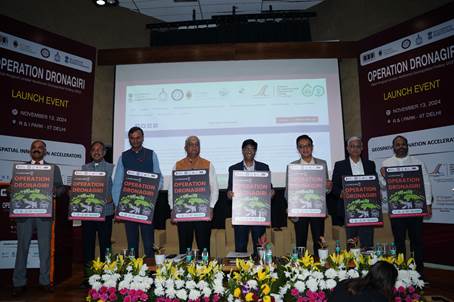
- 15 Nov 2024
In News:
- Recently, the Operation Dronagiri, launched under the National Geospatial Policy 2022 by the Department of Science and Technology (DST).
- Objective: It is a pilot project under India’s National Geospatial Policy 2022 aimed at showcasing the potential of geospatial technologies in sectors such as Agriculture, Livelihoods, and Logistics & Transport to improve quality of life and ease of doing business.
- Implementation:
- The first phase will cover five states: Uttar Pradesh, Haryana, Assam, Andhra Pradesh, and Maharashtra.
- Sectors Targeted: The focus will be on demonstrating the integration of geospatial data to solve real-world challenges in agriculture, transportation, and livelihoods.
National Geospatial Policy 2022
- Context: The National Geospatial Policy 2022 is aimed at liberalizing geospatial data and enabling widespread access and use of geospatial technologies across various sectors of governance, business, and development.
- Goals:
- Development of Geospatial Infrastructure: Promoting the creation of a robust infrastructure to make spatial data more accessible and usable.
- Geospatial Skill Development: Focus on creating a workforce proficient in geospatial technologies.
- Implementation of Standards: Establishing clear standards for geospatial data to ensure consistency and interoperability.
Role of Integrated Geospatial Data Sharing Interface (GDI)
- Launch: Alongside Operation Dronagiri, the Integrated Geospatial Data Sharing Interface (GDI) was also unveiled.
- Purpose: GDI is designed to facilitate seamless data sharing, access, and analysis of geospatial data.
- Key Features:
- Data Exchange: Enables smooth sharing of geospatial data for urban planning, disaster management, and environmental monitoring.
- Privacy and Security: Built with advanced data exchange protocols and privacy-preserving features to ensure secure data sharing.
- Collaboration: It will promote collaboration among stakeholders, including government agencies, industry, and startups, to unlock actionable insights for decision-making.
- Key Features:
Potential Applications of Geospatial Data
- Urban Planning: Assisting cities in designing efficient infrastructure.
- Disaster Management: Providing real-time data for better disaster response.
- Environmental Monitoring: Supporting initiatives for environmental protection and sustainability.
- Agriculture: Precision farming, crop monitoring, and improving supply chains.
- Logistics & Transport: Streamlining transportation networks, reducing traffic, and improving delivery systems.
Grand Challenge for Startups
- Objective: A Grand Challenge was announced as part of the initiative to support startups in developing Proofs of Concept (POCs) targeting specific problems in the focus sectors.
- Role of Startups: The challenge encourages innovation by early-stage and growth-stage startups in geospatial technology, offering mentorship, resources, and access to datasets.
- Geospatial Innovation Accelerators:
- The Geospatial Innovation Accelerators (GIAs) at prestigious institutions like IIT Kanpur, IIT Bombay, IIM Calcutta, and IIT Ropar will support this effort.
- Mentorship and Resources: These accelerators will provide the necessary support for startups to turn their innovations into scalable solutions.
Key Stakeholders and Operational Arms
- Geospatial Innovation Cell (DST): Responsible for overseeing the project’s implementation and execution.
- Navavishkar I-Hub Foundation (IITTNiF): Will manage the operational activities of Operation Dronagiri.
- Partnering Institutions: GIAs at IIT Kanpur, IIT Bombay, IIM Calcutta, and IIT Ropar will be the operational arms.
- Private Sector Involvement: Significant involvement of private sector companies, including startups, is crucial to ensuring the success and scalability of the project.
Impact and Significance
- Socioeconomic Benefits: The integration of geospatial data into agriculture, transport, and logistics will improve efficiency, reduce costs, and boost economic activity in critical sectors.
- Geospatial Innovation: The initiative marks a significant step towards making India a global leader in geospatial technology and positioning the country as a hub for innovative solutions using geospatial data.
- Government Engagement: The project will involve various government departments and corporates in a public-private partnership (PPP) model, similar to the successful implementation of the UPI payment system.
Know Your Medicine (KYM) App

- 15 Nov 2024
In News:
Union Minister for Youth Affairs & Sports, Dr. Mansukh Mandaviya, has launched a nationwide appeal to strengthen the fight against doping in sports, urging athletes, coaches, and the entire sporting community to embrace the National Anti-Doping Agency (NADA) India's ‘Know Your Medicine (KYM)’ app.
Introduction to KYM App
- Launch: The app was launched by Dr. Mansukh Mandaviya, Union Minister for Youth Affairs and Sports, to combat doping in sports.
- Developer: National Anti-Doping Agency (NADA) India.
- Purpose: To prevent inadvertent doping by allowing athletes to check whether a medicine contains substances prohibited by the World Anti-Doping Agency (WADA).
Key Features of the KYM App
- Medicine Verification: The app enables athletes to verify if any medicine or its ingredients contain banned substances listed by WADA.
- Image and Audio Search: Unique search features help users easily search for specific sport-related information.
- Customizable Search: Users can select their sport category and receive relevant, sport-specific information.
- User-Friendly: Designed for athletes, coaches, and sports professionals to quickly verify medicines and ensure clean competition.
Importance of KYM App
- Supporting Clean Sports: The app promotes a fair and ethical sporting culture by reducing the risk of inadvertent doping.
- Integrity of Sports: Helps athletes avoid penalties or bans due to accidental doping, maintaining the integrity of the competition.
- Accessible Information: Provides easy access to information regarding medicines that may contain banned substances, which is crucial for athletes' health and careers.
NADA India's Mission
- Anti-Doping Awareness: The KYM app is part of NADA India’s broader initiative to educate athletes and raise awareness about the dangers of doping.
- Goal: To promote dope-free sports and ensure that athletes and coaches are equipped with the tools needed for compliance with anti-doping regulations.
NADA India: Background and Functions
- Established: NADA India was set up in November 2005 under the Societies Registration Act, 1860.
- Mission: To serve as the independent Anti-Doping Organization for India, aiming to create a doping-free sporting environment.
- Key Functions:
- Implementing Anti-Doping Code: Ensuring compliance with the World Anti-Doping Code among all sports organizations in India.
- Dope Testing Program: Coordinating a national dope testing program with stakeholders across various sports.
- Promoting Research and Education: Encouraging research on anti-doping and educating athletes on the importance of staying clean.
- Adopting Best Practices: Ensuring the implementation of high-quality standards for anti-doping programs.
Impact and Significance
- Preventing Doping: The KYM app helps prevent inadvertent doping incidents by providing athletes with the necessary tools to check their medicines.
- Supporting Athletes: It provides athletes with a reliable way to avoid banned substances in over-the-counter medications, thus safeguarding their careers.
- National and International Compliance: Supports India’s commitment to complying with international anti-doping norms, contributing to a global effort to maintain fairness in sports.
Jawaharlal Nehru Memorial Fund (JNMF)
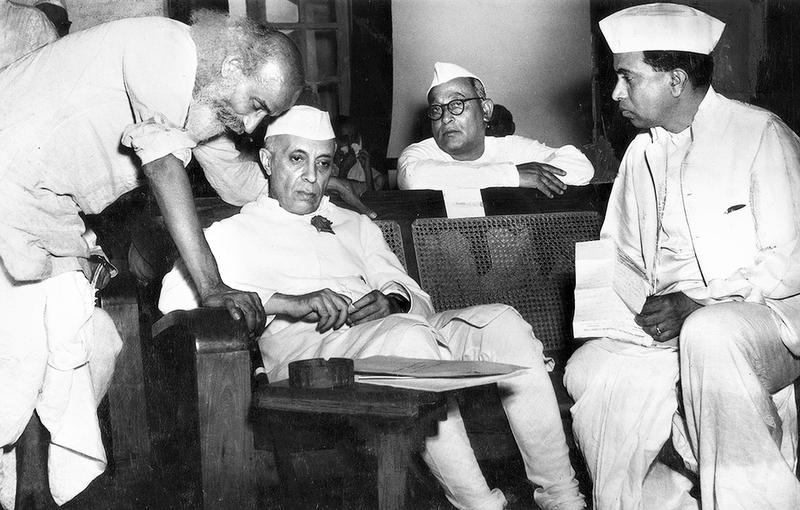
- 14 Nov 2024
In News:
Jawaharlal Nehru Memorial Fund to launch ‘Nehru Archive’ next year.
Nehru Archive Initiative
- Launch Date: The Nehru Archive will go online on November 14, 2025, coinciding with Jawaharlal Nehru's birth anniversary.
- Purpose: The archive will showcase less-known published and unpublished works of India’s first Prime Minister, Jawaharlal Nehru, including his speeches, letters to Chief Ministers, and other writings.
Archive Content
- Key Features:
- 100 volumes of The Selected Works of Jawaharlal Nehru.
- Letters to Chief Ministers (1947-1964), documenting Nehru's communication with state leadership.
- Nehru’s iconic books like:
-
-
- The Discovery of India
- Glimpses of World History
- Letters from a Father to His Daughter
- An Autobiography
- The Unity of India
- A Bunch of Old Letters
-
-
- Speeches from 1917 to 1964.
- Writings on Nehru by his contemporaries.
- Global archival material from international sources.
- Objective: The goal is to provide dynamic, continuously updated, open-ended access to Nehru’s work, making it the most important research source on Nehru.
Significance
- Educational and Intellectual Contribution: The archive will serve as a comprehensive, accessible source of information for students, scholars, and the general public to understand Nehru’s contributions to the making of modern India.
- Preservation of Legacy: It will preserve and promote Nehru’s intellectual legacy and his vision for India's development post-independence.
- Historical Importance: The archive will help contextualize Nehru’s leadership during critical periods of Indian history, including India’s independence, partition, and post-independence challenges.
Governance and Establishment of JNMF
- Founded: The Jawaharlal Nehru Memorial Fund (JNMF) was established in 1964 through a Deed of Declaration of Trust following a National Committee chaired by Dr. S. Radhakrishnan, then President of India.
- Purpose: To preserve and promote Nehru's legacy, especially his role in shaping modern India.
- Governance: The JNMF is governed by 14 trustees and is currently headed by Sonia Gandhi, the Chairperson of the Congress Parliamentary Party.
Accessibility for Disabled Persons
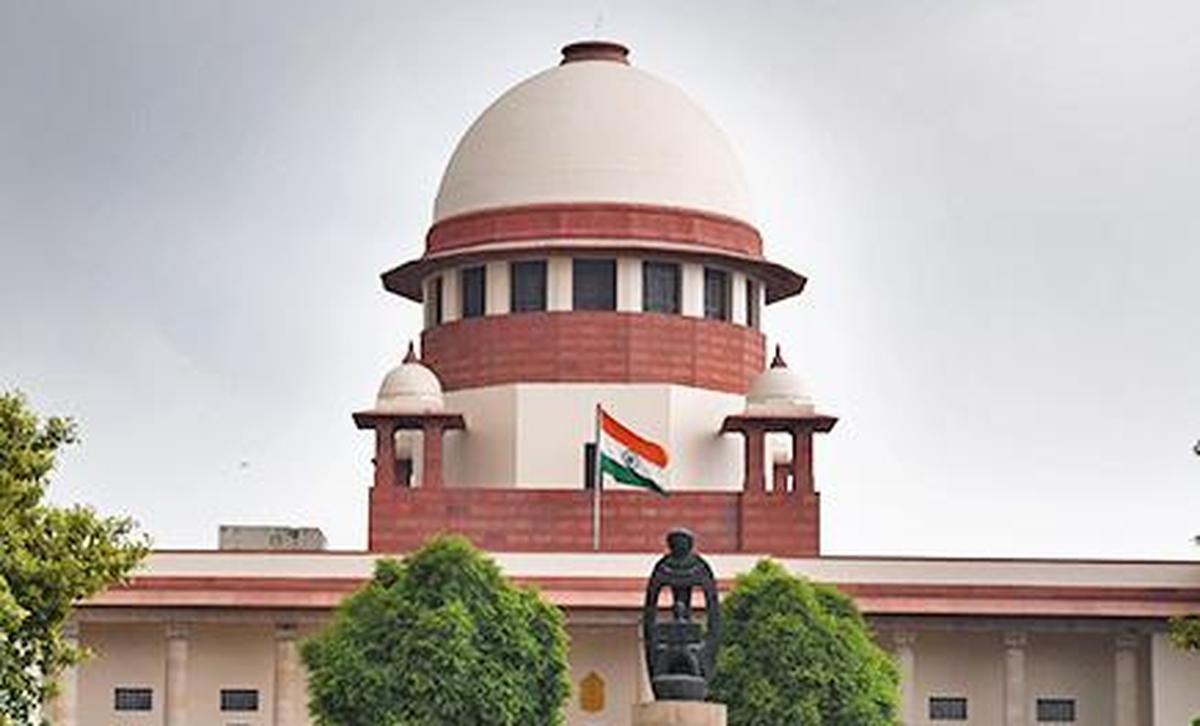
- 13 Nov 2024
In News:
Recently, the Supreme Court of India delivered a significant ruling affirming that the right of persons with disabilities (PwDs) to access environments, services, and opportunities is a fundamental human right. The judgment was made in the case of RajiveRaturi vs. Union of India &Ors. and is based on a report submitted by the Centre for Disability Studies (CDS) at NALSAR University of Law.
Key Points of the Judgment:
- Social Model of Disability:
- The Court upheld the social model of disability, which focuses on societal changes to ensure the full inclusion and participation of PwDs.
- The model emphasizes removing social barriers and creating an inclusive environment that accommodates all disabilities.
- Challenges Faced by PwDs: The ruling highlighted various challenges faced by PwDs, as identified in the CDS NALSAR report:
- Accessibility Barriers: Significant gaps exist in accessibility measures across public spaces such as courts, prisons, schools, and public transport.
- Intersectionality & Compounded Discrimination: PwDs often face multiple layers of discrimination, such as caste, gender, and socio-economic status, which compound their marginalization.
- Inconsistent Legal Framework: The RPwD Act (2016) mandates mandatory compliance for accessibility standards, but Rule 15 under RPwD Rules (2017) only offers self-regulatory guidelines, which the Court found insufficient.
- Court's Analysis of Rule 15:
- The Court declared Rule 15(1) of the RPwD Rules, 2017, as ultra vires, meaning it is inconsistent with the mandatory compliance intended by the RPwD Act.
- The Court stressed the need for stronger legal and regulatory enforcement to ensure access for PwDs.
- Principles of Accessibility: The Court outlined several essential principles for achieving accessibility:
- Universal Design: Environments and services should be universally accessible to all, including PwDs.
- Comprehensive Inclusion: All types of disabilities, both visible and invisible, should be addressed.
- Assistive Technology Integration: Using technology to support PwDs in daily activities.
- Stakeholder Consultation: PwDs and disability advocacy groups must be consulted in planning and designing accessible spaces.
- Two-Pronged Approach:
- The Court recommended a two-pronged approach:
- Ensure accessibility in existing infrastructure: Modify and update current institutions and services to become accessible.
- Design future infrastructure with accessibility in mind: Plan and build new spaces and services that are inclusive from the start.
- The Court recommended a two-pronged approach:
Legal and Policy Framework:
- Rights of Persons with Disabilities (RPwD) Act, 2016:
- The RPwD Act mandates various accessibility standards and provisions to protect and promote the rights of PwDs, in alignment with India’s obligations under the United Nations Convention on the Rights of Persons with Disabilities (UNCRPD), which India ratified in 2007.
- The Act defines a person with a benchmark disability as someone with at least 40% of a specified disability.
- International Obligations:
- The ruling reaffirmed the importance of Article 9 of the UNCRPD, which emphasizes the right of PwDs to access the physical environment, transport, and information and communication technologies.
- Government Initiatives: The judgment highlights several initiatives aimed at improving accessibility:
- Accessible India Campaign (Sugamya Bharat Abhiyan): A nationwide effort to make public spaces and services accessible to PwDs.
- Assistance for Aids and Appliances: Government schemes to provide PwDs with necessary aids and appliances.
- Unique Disability Identification Portal: A platform for PwDs to register and obtain a disability certificate.
Notable Judicial Precedents:
The Court referred to several previous rulings that recognized the right to accessibility:
- State of Himachal Pradesh v. Umed Ram Sharma (1986): The Court included the right to accessibility under the Right to Life (Article 21) of the Constitution.
- Disabled Rights Group v. Union of India (2017): The Court directed that educational institutions ensure reserved seats for PwDs.
EV as a Service Programme
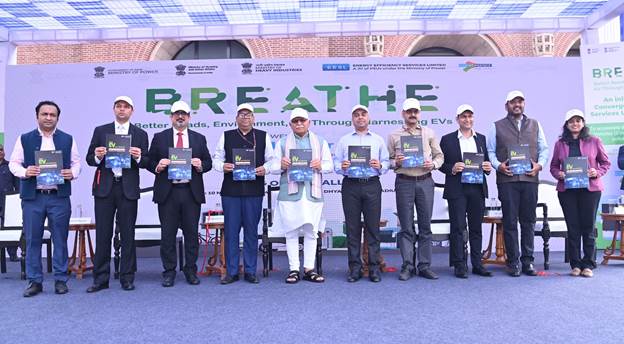
- 11 Nov 2024
In News:
- The 'EV as a Service'programme was launched by Shri Manohar Lal, Union Minister of Power and Housing & Urban Affairs, at the Major Dhyan Chand National Stadium.
- The initiative is spearheaded by Convergence Energy Services Limited (CESL), a subsidiary of Energy Efficiency Services Limited (EESL), to promote electric vehicles (EVs) in government offices.
Objective:
- The 'EV as a Service'programme aims to boost e-mobility within the government sector by deploying 5,000 electric cars in central and state government ministries, public sector enterprises (CPSEs), and various institutions over the next two years.
- The programme is designed to support India’s net-zero emissions goal by 2070 and advance the country's environmental sustainability vision.
Flexible Procurement Model:
- The programme utilizes a flexible procurement model, allowing government offices to choose from a range of E-Cars based on operational needs, making it adaptable for different government departments.
- It will help in reducing the reliance on fossil fuels, cutting carbon emissions, and contributing to energy security.
CESL’s Contribution:
- CESL has already deployed 2000 electric cars across India and is working on deploying around 17,000 electric buses.
- The 'EV as a Service'programme is a key step in helping India transition to clean mobility and reducing emissions from government fleets.
Alignment with National Initiatives:
- The launch complements the PM E-DRIVE Scheme, which aims to accelerate India’s transition to electric mobility.
- Vishal Kapoor, MD & CEO of CESL, emphasized that the initiative is helping to create a collaborative ecosystem involving manufacturers, fleet operators, policymakers, and users to scale up electric mobility in India.
Comics Commandos in Assam

- 11 Nov 2024
In News:
- "Comics Commandos" is an innovative initiative launched in Goalpara district, Assam, aimed at combating child labour and child marriage through the creative medium of comics.
- The initiative trains 30 local youths to create comic strips that use humour and minimal text for effective communication and public engagement.
Purpose and Objectives:
- Primary Goal: To raise awareness about child labour and child marriage, two major social issues prevalent in the region, by using visual storytelling.
- The initiative aims to resonate with the local community, focusing on everyday struggles like economic hardship, child abuse, and the social norms that perpetuate these issues.
- Rising Dropout Rates: Assam has witnessed an increase in school dropout rates, from 3.3% in 2020-21 to 6.02% in 2021-22, exacerbated by economic pressures like poverty, which force children to work or marry early.
Execution and Approach:
- Training: Thirty local youths are trained to design caricatures and doodles for the comics, ensuring the messages are both simple and engaging for a broader audience.
- Visual Storytelling: The use of visuals over text helps overcome literacy barriers and makes the message more impactful and accessible.
- Community Involvement: The program collaborates with teachers and school committees to facilitate wider participation and support in creating social awareness.
Government Support:
- Chief Minister HimantaBiswaSarma initiated a state-wide campaign in 2023 against child marriage, with the ambitious goal of eradicating it by 2026. This initiative aligns with the state's broader efforts to address social issues.
Impact of the Initiative:
- Comics Commandos is being seen as an effective tool for community empowerment and awareness generation in a region that faces persistent social challenges.
- By involving local youths in the campaign, the initiative ensures community participation and ensures that the message is communicated in a culturally relevant manner.
- The program also empowers young people to use their creativity for social change, thus helping build leadership and social responsibility among the youth.
Parliamentary Panel's Review on Mechanism to Curb Fake News

- 11 Nov 2024
In News:
- The Parliamentary Panel on Communications and Information Technology is reviewing mechanisms to curb fake news, following the Bombay High Court striking down a provision of the amended Information Technology (IT) Rules, 2021.
- The controversial provision allowed the government to identify and flag "fake news" on social media through its Fact Check Unit (FCU).
- The panel, led by BJP MP Nishikant Dubey, has summoned representatives from News Broadcasters and Digital Association and the Editors Guild of India to discuss the issue on November 21, 2024.
Issue with the Amended IT Rules:
- The IT Rules, 2021 were amended in April 2022 to include “government business” under the definition of fake news, expanding the scope of content flagged by the FCU.
- This amendment was challenged by media bodies and individuals like comedian Kunal Kamra, leading to the Bombay High Court striking it down in 2024.
- The court deemed the provisions unconstitutional, citing concerns about transparency and the potential misuse of power.
Types of Fake News:
- Misinformation: False information spread unintentionally.
- Disinformation: Deliberately false information meant to deceive and cause harm.
Status of Fake News in India:
- India as a major spreader of misinformation: The World Economic Forum's Global Risks 2024 report identifies disinformation as a significant short-term risk, with India as one of the largest consumers and producers of false information.
- Social Media Influence: Platforms like Facebook, WhatsApp, Twitter, and YouTube are widely used in India for news dissemination, making them a breeding ground for fake news.
- Spread of Political and Religious Misinformation: Fake news often serves political or religious agendas, leading to societal polarization and conflict.
Government Efforts to Combat Fake News:
- IT (Intermediary Guidelines and Digital Media Ethics Code) Amendment Rules, 2023: This amendment expanded the scope of "fake news" to include “government business” and gave the FCU the authority to flag misleading content.
- Press Information Bureau (PIB) Fact Check Unit: The PIB continues to run a fact-checking initiative, but it lacks the authority to remove flagged content from social media platforms.
- Digital Literacy Campaigns: Programs like Pradhan Mantri Gramin Digital Saksharta Abhiyan (PMGDISHA) aim to improve digital literacy, especially in rural areas, to help citizens identify and avoid fake news.
Digital Population Clock
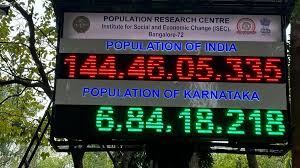
- 09 Nov 2024
In News:
- Bengaluru's first digital population clock was inaugurated at the Institute for Social and Economic Change (ISEC) on November 8, 2024.
- The initiative is collaboration between ISEC and the Union Ministry of Health and Family Welfare (MoHFW).
Purpose:
- The clock provides real-time population estimates for Karnataka and India.
- It aims to enhance awareness about population dynamics and provide accurate demographic data for research and policy analysis.
Key Features:
- Real-time Updates:
- Karnataka’s population is updated every 1 minute and 10 seconds.
- India’s population updates every 2 seconds.
- Precision:
- The clock operates with satellite connections for real-time, accurate data updates.
- It functions autonomously with integrated components, ensuring continuous and precise tracking.
- Location: The clock is prominently displayed at the entrance of ISEC.
- National Expansion: Similar digital population clocks are being installed in 18 Population Research Centres across India by MoHFW.
Significance:
- Awareness: The clock serves as a visual tool to highlight the rapid pace of population growth and its implications for sustainable development.
- Research and Analysis: The clock is part of a broader effort to improve demographic studies and inform policy-making.
- Census Data Research Workstation:
- ISEC has introduced a new research workstation, supported by MoHFW, for in-depth demographic analysis.
- The facility is equipped with advanced software for studying population trends and supporting academic research.
One Rank One Pension (OROP) Scheme
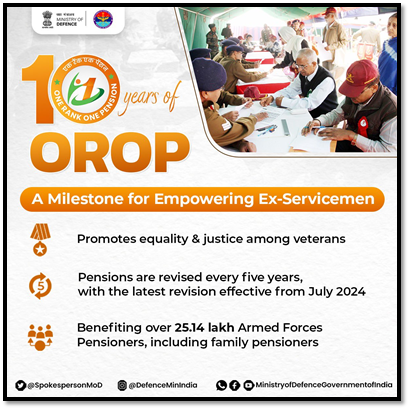
- 08 Nov 2024
In News:
As OROP completes the 10 years in 2024, it is essential to reflect on the immense benefits the scheme has brought to the armed forces community.
Overview:
- Implemented on: November 7, 2015.
- Announced in: Union Budget 2014, allocation of ?1,000 crore.
- Aim: To ensure uniform pension for military personnel retiring at the same rank with equal service duration, irrespective of retirement date.
- Significance: A landmark reform addressing a four-decade-long demand of ex-servicemen.
- Origin: Longstanding demand since the 1970s; first highlighted by the 3rd Central Pay Commission.
- Key Committees: K.P. Singh Dev Committee (1984) and Sharad Pawar Committee (1991) recommended reforms but faced financial and administrative hurdles.
Key Features:
The policy’s primary elements include:
- Re-fixation of Pensions: The pension of all past pensioners is re-fixed based on the pensions of personnel who retired in 2013, starting from July 1, 2014. This created a new benchmark for pensions, with all retirees getting equal benefits for their service.
- Periodic Revision: The pension is to be re-fixed every five years, ensuring that it continues to reflect changes in the pay and pension structure.
- Arrears Payments: Arrears of pension were to be paid in equal half-yearly installments, although the arrears for family pensioners and gallantry awardees were paid in a single installment.
- Safeguarding Above-Average Pension: For personnel drawing pensions higher than the average, their pensions are protected, ensuring that they do not lose out on the benefits of OROP.
- Inclusive of All Ex-Servicemen: The order covered all personnel who retired up to June 30, 2014, and provided a robust framework for revising pensions for all ranks, including family pensioners.
Impact:
- Veterans and Families:
- Benefited over 25 lakh ex-servicemen and families.
- Enhanced financial security, standard of living, and dignity.
- Emotional and Social Value:
- Strengthened trust between veterans and the government.
- Recognized sacrifices of armed forces personnel.
PM-Vidyalaxmi Scheme
- 07 Nov 2024
In News:
- The Union Cabinet, chaired by Prime Minister Narendra Modi, approved the PM Vidyalaxmi scheme to provide financial assistance to meritorious students for higher education.
- Objective: The scheme aims to ensure that financial constraints do not hinder students from pursuing quality higher education.
Key Features of the scheme:
- Eligibility:
- Students admitted to top 860 Quality Higher Education Institutions (QHEIs) are eligible.
- Includes both government and private institutions, as per the NIRF (National Institutional Ranking Framework) rankings.
- Loan Provision:
- Collateral-free and guarantor-free education loans for tuition fees and other course-related expenses.
- Loans up to ?7.5 lakhs will have a 75% credit guarantee from the government to encourage banks to offer loans.
- Interest Subvention:
- For students with an annual family income of up to ?8 lakhs (and not eligible for other scholarships or schemes), a 3% interest subvention will be provided on loans up to ?10 lakhs.
- This subvention applies during the moratorium period (when repayment is deferred).
- Preference for interest subvention is given to students in technical/professional courses and those from government institutions.
- Target Beneficiaries:
- Around 22 lakh students are expected to benefit from the scheme annually.
- The government has allocated ?3,600 crore for the period 2024-2025 to 2030-2031, with 7 lakh fresh students anticipated to receive the benefit each year.
- Digital Process:
- A unified “PM-Vidyalaxmi” portal will allow students to apply for loans and interest subvention in a simplified, transparent, and digital manner.
- Payment Method:
- Interest subvention will be paid via E-vouchers or Central Bank Digital Currency (CBDC) wallets.
Loan Product Features
- Collateral-free & Guarantor-free: Loans will be accessible without the need for collateral or a guarantor.
- Loan Coverage:
- The scheme will cover full tuition fees and other related expenses.
- Eligibility Criteria:
- Students enrolled in NIRF top 100 HEIs, state institutions ranked 101-200, and central government institutions are eligible.
- The list of eligible institutions will be updated annually based on the latest NIRF rankings.
Government's Commitment
- The scheme is a part of the National Education Policy 2020’s vision to enhance access to quality education through financial support.
- Additional Support:
- It complements the existing Central Sector Interest Subsidy (CSIS) and Credit Guarantee Fund Scheme for Education Loans (CGFSEL) under PM-USP.
- The CSIS scheme provides full interest subvention for students with an annual family income of up to ?4.5 lakhs, pursuing technical/professional courses.
PARAKH RashtriyaSarvekshan 2024
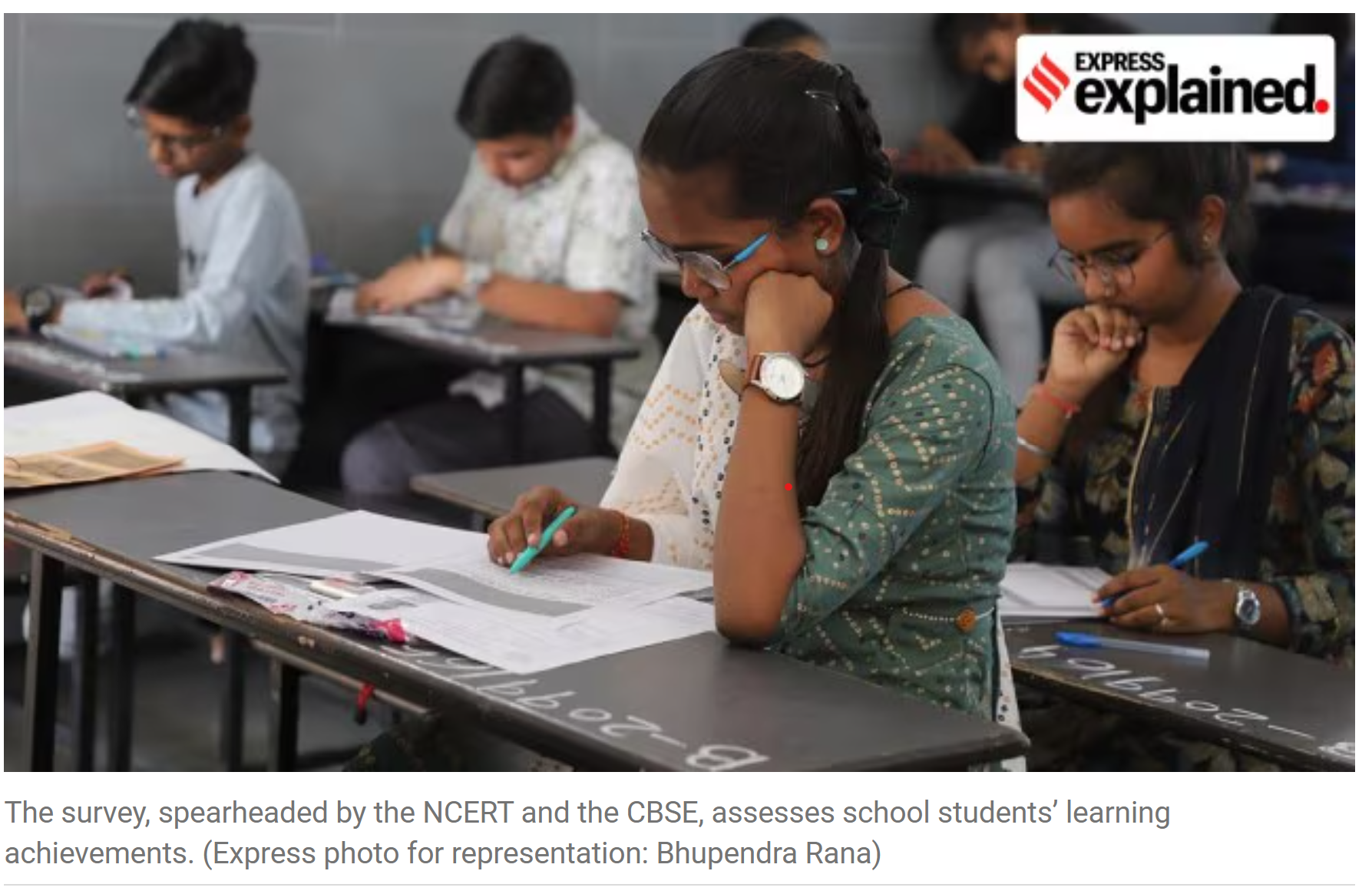
- 02 Nov 2024
In News:
The National Achievement Survey (NAS), a nationwide survey meant to assess students’ learning progress, will be held on December 4 this year under a new name – PARAKH RashtriyaSarvekshan 2024. This year’s assessment involves a few changes from the last round in 2021.
Overview of PARAKH RashtriyaSarvekshan 2024:
- New Name: The National Achievement Survey (NAS) is now rebranded as the PARAKH RashtriyaSarvekshan 2024.
- Date: The survey will be held on December 4, 2024.
- Purpose: To assess students’ learning achievements across India.
- Organizing Bodies: Spearheaded by NCERT and CBSE.
What Does the Survey Assess?
- Assessment Focus: Evaluates students’ learning outcomes in various subjects.
- Survey Methodology: Uses multiple-choice questions to assess a sample of students.
- Target Groups: Students from government, government-aided, and private schools across every district in India.
History of NAS and PARAKH:
- NAS History: Conducted every three years since 2001 to capture learning progress.
- Involvement of Classes:
- 2001-2014: Included Classes 3, 5, and 8.
- 2014-15: Class 10 was introduced.
- 2017 and 2021: Covered Classes 3, 5, 8, and 10.
- Report Cards: Provides national, state, and district-level performance data.
Changes in 2024 Survey (PARAKH RashtriyaSarvekshan):
- Targeted Classes:
- Class 3 (End of foundational stage)
- Class 6 (End of preparatory stage)
- Class 9 (End of middle stage)
- Exclusion of Class 10: Unlike previous years, Class 10 students are not part of this year's assessment.
- Subjects Assessed:
- Class 3 & 6: Language, Mathematics, and The World Around Us (Concepts of Science, Social Science, and Environmental Education).
- Class 9: Language, Mathematics, Science, and Social Science.
Alignment with National Education Policy (NEP) 2020:
- NEP Structure: Aligns with the NEP 2020 framework, categorizing educational stages:
- Class 1-2: Foundational stage
- Class 3-5: Preparatory stage
- Class 6-8: Middle stage
- Class 9-12: Secondary stage
- The shift to Class 6 and 9 for this year’s survey matches the NEP's stage-wise educational framework.
Key Differences in 2024 Assessment:
- Survey Scale: In 2024, 75,565 schools and 22.9 lakh students from 782 districts will participate.
- 2021 Assessment Data:
- The 2021 survey revealed a drop in learning outcomes post-COVID-19.
- Class 3 students showed a performance below the national average in all states.
- Class 5: Only Punjab and Rajasthan had scores above the national average.
PARAKH's Role:
- PARAKH (Performance Assessment, Review, and Analysis of Knowledge for Holistic Development) was established in 2023 as the National Assessment Centre to oversee such achievement surveys.
- Mandate: One of PARAKH’s primary roles is to organize national surveys like the PARAKH RashtriyaSarvekshan.
Significance of the Survey:
- Data Utilization: The survey helps in shaping educational policies based on real-time data on student learning levels.
- Competency-Based Assessment: This year’s survey is focused on competency-based assessments, aligning with the goals of NEP 2020.
- Policy and Planning: The data helps in designing interventions to address regional or subject-wise disparities in education quality.
CRS Mobile App
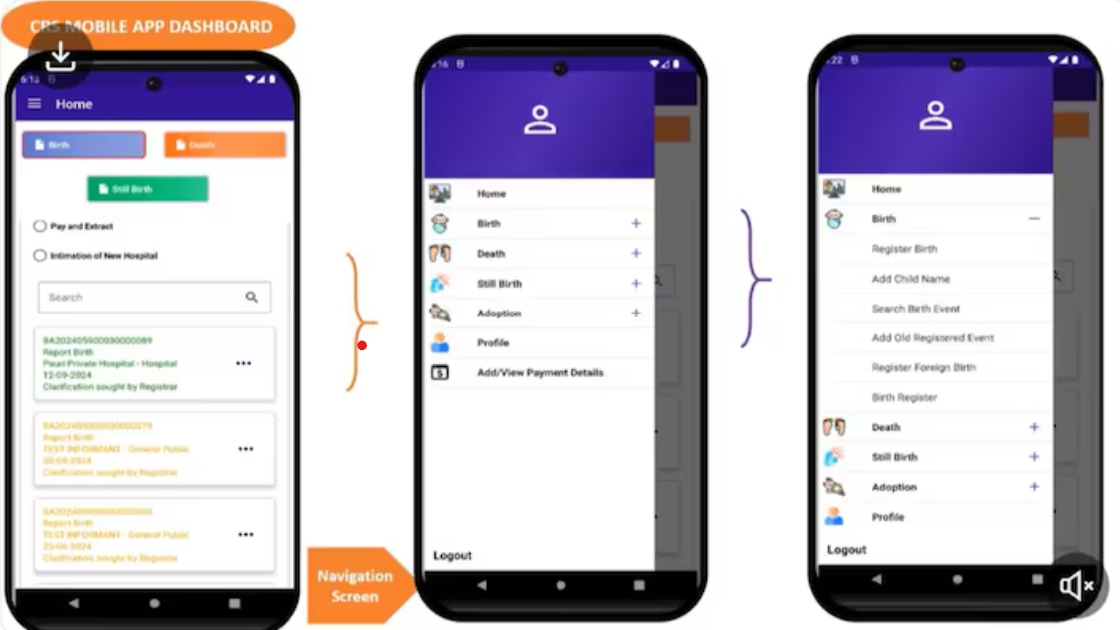
- 30 Oct 2024
In News:
- Recently, the Union Home Minister Amit Shah launched the Civil Registration System (CRS) mobile app.
- The app aims to integrate technology with governance by making the registration of births and deaths more accessible, seamless, and hassle-free.
Key Features of the App:
- Anytime, Anywhere Registration: Citizens can register births and deaths from anywhere and at any time, in their State’s official language.
- The app is designed to significantly reduce the time required for registration, making it more efficient and convenient for users.
Legal and Policy Background:
- The Registration of Births and Deaths (Amendment) Act, 2023 mandates that all births and deaths in India, occurring from October 1, 2023, must be digitally registered through the Centre’s portal: dc.crsorgi.gov.in.
- This move is part of the broader effort to digitize civil records and create a centralized database.
Benefits of Digital Registration:
- Digital Birth Certificates: The new system will issue digital birth certificates which will serve as a single document to prove the date of birth for various services, such as:
- Admission to educational institutions
- Applying for government jobs
- Marriage registration
- Centralized Database: The integration of birth and death data into a centralized database will help update critical records such as:
- National Population Register (NPR)
- Ration cards
- Property registration
- Electoral rolls
National Population Register (NPR) Integration:
- The data collected through the CRS app will assist in updating the National Population Register (NPR), which was first collected in 2010 and updated in 2015 through door-to-door enumeration.
- The NPR serves as the first step toward the creation of the National Register of Citizens (NRC) under the Citizenship Act, aimed at identifying Indian citizens.
New Disability Certificate Rules (RPwD Rules, 2024)
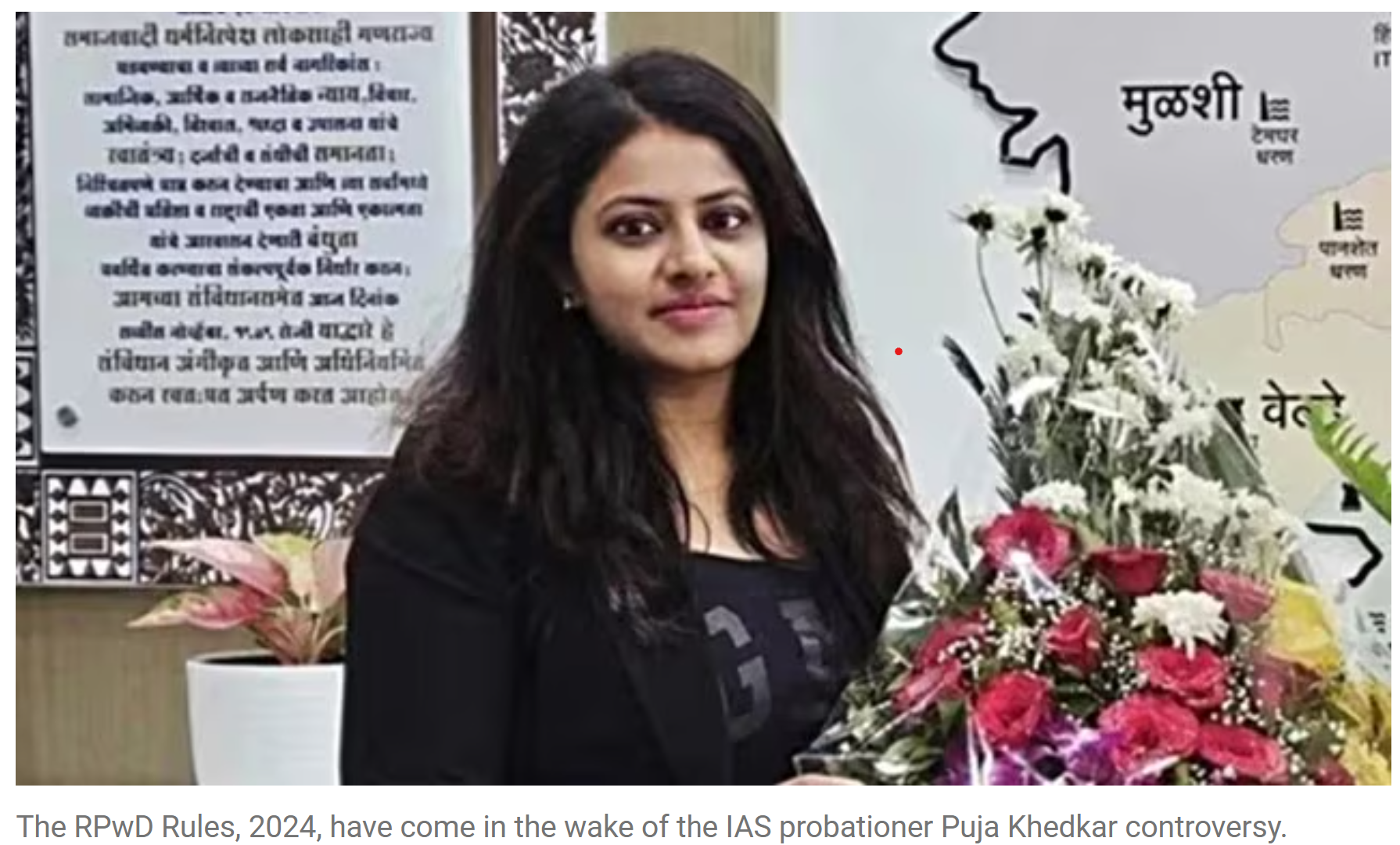
- 29 Oct 2024
In News:
- The Rights of Persons with Disabilities (RPwD) Rules, 2024, were amended by the Union Government in the wake of the Puja Khedkar controversy, where an IAS probationer was dismissed for alleged forgery in her disability and caste certificates.
- National Platform for the Rights of the Disabled (NPRD) has called for a rollback of the new rules, citing that they make the process of obtaining disability certificates more stringent and cumbersome.
Key Changes Under the New RPwD Rules, 2024
- Authority for Issuing Disability Certificates:
- Only a designated medical authority or a notified competent medical authority at the district level can issue disability certificates.
- NPRD had proposed that experts from non-profits also be authorized to carry out checks, but this suggestion was not accepted.
- Colour-Coded UDID Cards:
- The new rules introduce colour-coded UDID cards to represent levels of disability:
- White (general disability)
- Yellow (moderate disability)
- Blue (severe disability with 80% or higher).
- The new rules introduce colour-coded UDID cards to represent levels of disability:
- Mandatory Online Applications:
- Applicants are now required to apply for disability certificates online, which could be problematic for individuals who lack access to the internet, smartphones, or are digitally illiterate.
- The NPRD has urged the government to retain the option for in-person applications.
- Extended Time for Certificate Issuance:
- The new rules extend the time for issuing disability certificates from one month to three months.
- Reapplication Requirement:
- If there is no action taken on an application for two years, the applicant will have to reapply, which the NPRD considers unacceptable, as it punishes disabled individuals for system failures.
NPRD's Concerns
- Regressive and Burdensome:NPRD believes the amendments are regressive, adding more hurdles for genuine persons with disabilities to access certificates, which are crucial for identification and entitlement to services.
- Lack of Accountability:The NPRD argues that the rules do not address the systemic issues highlighted by the Puja Khedkar case, such as the lack of accountability at various levels in the certification process.
- Online Application Issues:Many people from the disabled community may struggle with technical jargon used in online applications and may not have the resources to complete the process digitally.
- Delay in Issuance:Extending the time for issuing certificates to three months could create delays for those in urgent need of certification for services or entitlements.
Center for Generative AI, Srijan
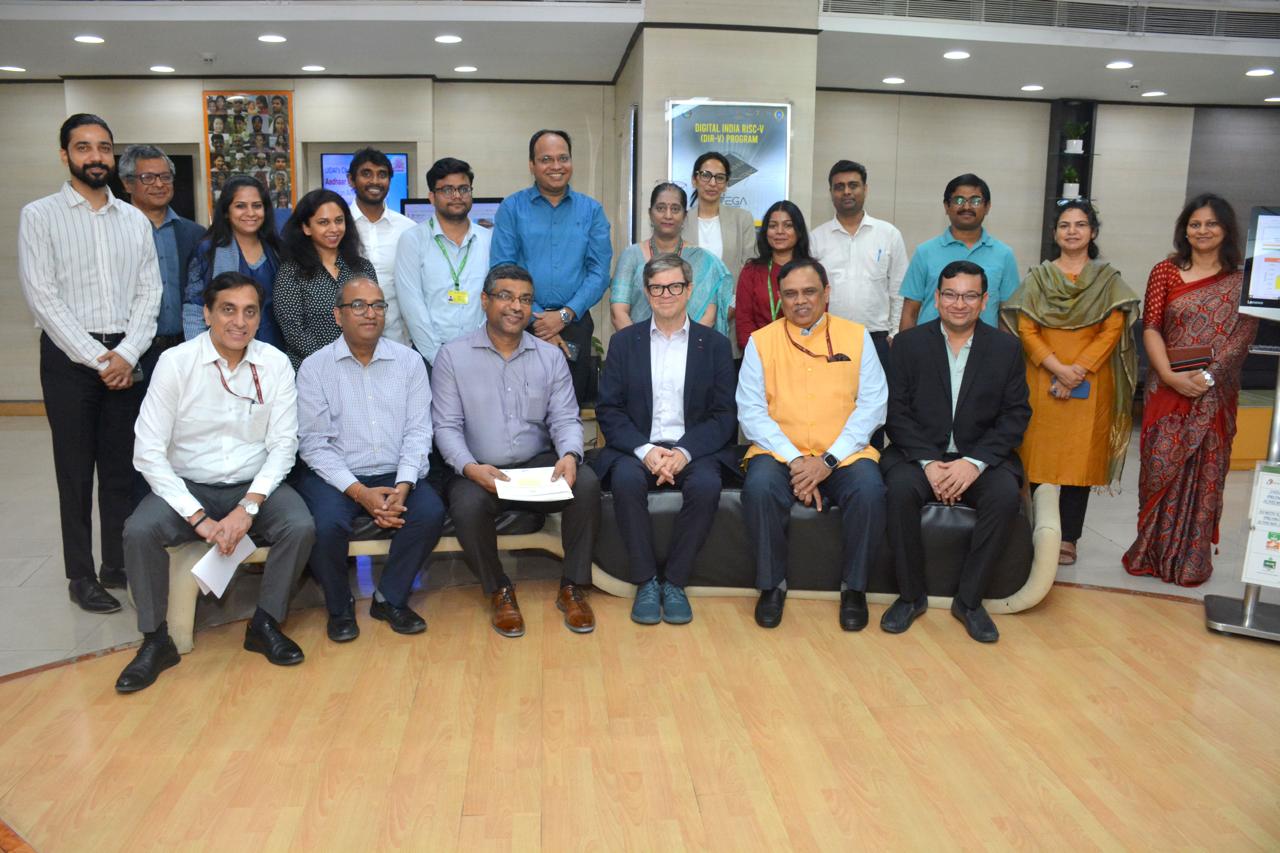
- 27 Oct 2024
In News:
IndiaAI and Meta have announced the establishment of the Center for Generative AI, Srijan (????) at IIT Jodhpur, along with the launch of the “YuvAi Initiative for Skilling and Capacity Building” in collaboration with the All India Council for Technical Education (AICTE), for the advancement of open source artificial intelligence (AI) in India.
Key Initiatives Launched
- Center for Generative AI, Srijan (????) at IIT Jodhpur:
- Focus on Generative AI (GenAI) research and innovation.
- Meta’s support for ethical and responsible development of AI technologies.
- Aim to empower researchers, students, and practitioners with the tools for responsible AI deployment.
- Focus Areas: Open science, AI policy advisory, and indigenous AI application development.
- YuvAi Initiative for Skilling and Capacity Building:
- Target: Empower 100,000 students and young developers (ages 18-30) with AI skills.
- Core Focus: Leveraging open-source Large Language Models (LLMs) for real-world solutions.
- Skills Development: Generative AI, open-source tools, and sector-specific AI applications (healthcare, education, agriculture, smart cities, mobility, and financial inclusion).
- Partnership: Collaboration with AICTE (All India Council for Technical Education).
Strategic Goals and Outcomes
- Research and Innovation:
- Strengthen India’s AI ecosystem through groundbreaking research and collaborations.
- Focus on open-source AI and indigenous AI solutions for national challenges.
- Empower India to lead in AI through ethical and responsible AI deployment.
- AI Talent Development:
- Bridge the AI talent gap by training young developers in open-source AI technologies.
- Develop AI solutions for critical sectors like healthcare, education, agriculture, smart cities, and financial inclusion.
- Program Components:
- GenAI Resource Hub with courses, case studies, and open datasets.
- Unleash LLM Hackathons for students to propose AI solutions for real-world challenges.
- Support for AI startups through an Innovation Accelerator.
Sectoral Focus and Impact
- Healthcare: AI for diagnostics, personalized medicine, and healthcare delivery.
- Education: AI tools for enhancing learning outcomes and personalized education.
- Agriculture: AI solutions for precision farming, pest control, and crop management.
- Smart Cities: AI in urban planning, traffic management, and public services.
- Mobility: AI applications in transportation, logistics, and urban mobility.
- Financial Inclusion: AI in fintech, digital payments, and financial services for underserved populations.
Additional Programs and Opportunities
- AICTE Collaboration: Mobilizing technical institutions across India to build AI capabilities.
- Master Training Activation Workshops: To introduce foundational AI concepts to students.
- Mentorship and Grants: Top AI solutions from hackathons will receive mentoring, seed grants, and market support.
- Student Startups: AI Innovation Accelerator will incubate 10 student-led AI startups experimenting with open-source models.
Precision Medicine, Biobanks, and Regulatory Challenges in India

- 26 Oct 2024
In News:
Precision medicine is bringing in a new era of personalised healthcare. The field began to take concrete shape when scientists were wrapping up the Human Genome Project.
Introduction to Precision Medicine:
- Precision Medicine is a novel approach to healthcare that tailors treatments and preventive strategies based on an individual’s genetics, environment, and lifestyle, instead of using a one-size-fits-all approach.
- It leverages technologies like genomics, gene editing (CRISPR), and mRNA therapeutics to address various diseases such as cancer, chronic diseases, and genetic disorders.
- Recent breakthroughs include gene therapy for restoring vision and stem cell transplants for reversing diabetes, demonstrating the transformative potential of precision medicine.
Role of Biobanks in Precision Medicine:
- Biobanks are repositories storing biological samples (blood, DNA, tissues) along with associated health data. These samples are crucial for research and development of personalized treatments.
- Large and diverse biobanks are essential for ensuring that precision medicine benefits a wide demographic, as data from homogenous groups could limit the applicability of findings.
- Recent studies using biobank data have led to breakthroughs, such as identifying rare genetic disorders and developing organoid models for high-throughput drug screening.
Precision Medicine and Biobanks in India:
- Market Growth: India’s precision medicine market is growing at a CAGR of 16%, expected to surpass USD 5 billion by 2030, contributing 36% to the national bioeconomy.
- Policy Framework: The government’s BioE3 policy aims to promote biomanufacturing, with a focus on precision therapeutics and related technologies like gene editing and cancer immunotherapy.
- Biobank Initiatives:
- Genome India Programme: Completed sequencing of 10,000 genomes from 99 ethnic groups, aimed at identifying treatments for rare genetic diseases.
- Phenome India Project: Focused on collecting 10,000 samples for improving prediction models for cardio-metabolic diseases.
- Paediatric Rare Genetic Disorders (PRaGeD) Mission: Aiming to identify genes that could help develop targeted therapies for genetic diseases in children.
Regulatory and Ethical Challenges in Biobanking:
- India’s biobanking regulations are inconsistent, hindering the full potential of precision medicine. Unlike countries like the U.K., U.S., and Japan, which have comprehensive laws addressing issues like informed consent, data protection, and privacy, India lacks a cohesive regulatory framework.
- Informed Consent Issues: In India, participants provide samples without full knowledge of how their data will be used, who will have access to it, and for how long it will be stored. This lack of transparency undermines public trust in biobank research.
- Ethical Concerns: Without a clear regulatory framework, there is a risk of misuse of biological samples, such as non-consensual data sharing and sample mishandling.
- International Implications: The absence of robust laws allows foreign pharmaceutical companies to access Indian biobank data and samples without ensuring that the Indian population benefits from the resulting research or profits.
Global Comparison of Biobank Regulations:
- International Standards: Countries like the U.K., U.S., and Japan have established comprehensive biobank regulations, addressing:
- Informed consent for sample collection and data usage.
- Privacy protection and secure storage of genetic information.
- Withdrawal rights for participants at any stage of research.
- India’s biobank regulations lack clear provisions for data protection and participant rights, limiting the effectiveness of research and undermining public confidence in biobanks.
PM Young Achievers’ Scholarship Award Scheme for Vibrant India (PM YASASVI)
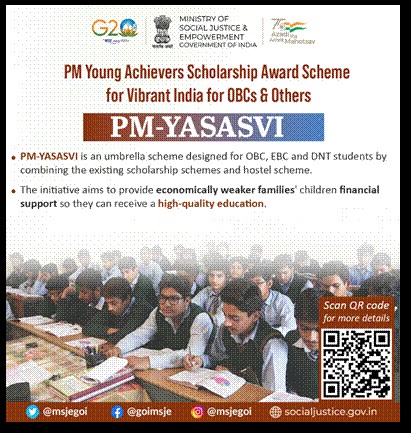
- 24 Oct 2024
In News:
With a vision of "Sabka Sath, Sabka Vikas", the Ministry of Social Justice and Empowerment has implemented the PM Young Achievers Scholarship Award Scheme for Vibrant India (PM-YASASVI).
- Objective of PM-YASASVI:
- The scheme aims to provide financial support and educational opportunities to students from Other Backward Classes (OBC), Economically Backward Classes (EBC), and Denotified Tribes (DNT).
- The goal is to help these students overcome financial barriers and pursue quality education, fostering a more inclusive and equitable society.
- Consolidation of Earlier Schemes:
- PM-YASASVI integrates multiple previous scholarship schemes:
- Dr. Ambedkar Post-Matric Scholarship for EBCs.
- Dr. Ambedkar Pre-Matric and Post-Matric Scholarship for DNTs.
- This consolidation aims to streamline the process and increase the impact on vulnerable groups.
- Key Components of the Scheme:
- Pre-Matric Scholarship: For students in Class 9-10 with annual family income below ?2.5 lakh. Provides ?4,000 annually.
- Post-Matric Scholarship: For students pursuing higher education, with academic allowances ranging from ?5,000 to ?20,000 based on course type.
- Top Class School Education: For meritorious students, offering ?1.25 lakh annually for students from OBC, EBC, and DNT categories in Classes 9-12.
- Top Class College Education: Covers tuition, living expenses, and educational materials for students in top institutions.
- Construction of Hostels for OBC Boys and Girls: Provides hostel facilities to socially and educationally backward students near government institutions.
- Scope and Financial Allocation (2023-24):
- Pre-Matric Scholarship: ?32.44 crore allocated to states and UTs for the year 2023-24, benefiting 19.86 lakh students.
- Post-Matric Scholarship: ?387.27 crore allocated for the year, benefiting 27.97 lakh students.
- Top Class School Education: ?6.55 crore for 2,602 students.
- Top Class College Education: ?111.18 crore for 4,762 students.
- Hostel Construction: ?14.30 crore allocated for the construction of hostels, accommodating 1,146 students.
- Key Benefits:
- Financial Assistance: Reduces the financial burden on students from marginalized communities, enabling them to continue their education without financial stress.
- Inclusive Education: Supports students from disadvantaged backgrounds, ensuring that they can access quality education from school through to higher education.
- Promotion of Merit: Focuses on meritorious students, ensuring that academic excellence is supported at all levels, from school to top-class institutions.
- Selection Process:
- The YASASVI Entrance Test (YET) is conducted by the National Testing Agency (NTA) for candidate selection under the scheme.
- Eligible students must appear for this test, and the results determine scholarship awards.
- Eligibility Criteria:
- The scheme is open to OBC, EBC, and DNT students with a family income not exceeding ?2.5 lakh annually.
- Additional specific eligibility criteria may apply for different scholarships under the scheme.
- Application Process:
- Interested students can apply for scholarships via the National Scholarship Portal (scholarships.gov.in), which is the official platform for application submission.
Cyberfraud Losses and Economic Impact

- 24 Oct 2024
In News:
- ?1.2 lakh crore is the projected financial loss due to cyber frauds in India over the next year (2024), according to the Indian Cyber Crime Coordination Centre (I4C) under the Union Home Ministry.
- This could amount to 0.7% of India’s GDP.
- Mule Accounts:
- Mule accounts are a significant contributor to cyber frauds. These accounts are used to facilitate money laundering and illegal transactions.
- On average, around 4,000 mule accounts are identified daily by I4C.
- Mule accounts typically facilitate the transfer of funds out of India, often through cryptocurrency transactions.
- Sources of Cyber Scams:
- A majority of frauds are linked to Chinese entities or China-based operations, with about half of the cybercrime complaints originating from China.
- Other major hubs for cyber frauds include Cambodia, Myanmar, and Laos, which house call-centre-like scam compounds.
- Azerbaijan has also been identified as a new hotspot for such scams.
- International Dimension:
- Fraudulent withdrawals have been reported from ATMs in Dubai, Hong Kong, Bangkok, and Russia using mule accounts.
- The international nature of these scams often involves routing stolen funds through various countries, using methods like cryptocurrency exchanges.
- Cybercrime and Terror Financing:
- Cyber scams have potential ramifications beyond financial losses; they can be used for terror financing and money laundering.
- Cryptocurrency is a common medium for laundering money, with an example cited of ?5.5 crore laundered through 350 transactions in a short span.
- ATM Hotspots and Fraudulent Withdrawals:
- 18 ATM hotspots have been identified across India where fraudulent withdrawals occur.
- Fraudsters exploit these locations to withdraw money, often using mule bank accounts and cross-border ATM networks.
- Government Response:
- The Ministry of Home Affairs (MHA) is working to combat these frauds by convening meetings with the Union Finance Ministry and the Reserve Bank of India (RBI).
- The objective is to curb the operation of mule accounts and strengthen the banking system to prevent such frauds.
- Banks are being urged to flag unusually high-value transactions or accounts with low balances that are engaging in suspicious activity.
- Fraudulent Calls and Scam Compounds:
- Indian fraudsters, in collaboration with international scam rings, use Indian mobile phone numbers to deceive citizens.
- Countries like Cambodia, Myanmar, Laos, and Azerbaijan have been identified as hubs for investment scams involving fraudulent calls.
- Helpline and Cyber Fraud Reporting System:
- The Citizen Financial Cyber Fraud Reporting and Management System (part of I4C) and the 1930 helpline provide mechanisms to report financial frauds.
- ?11,269 crore in financial frauds was reported during the first half of 2024 via these channels.
- The system also involves cooperation with over 200 financial intermediaries, including banks and wallets.
Amazon Future Engineer Program (Phase 3)
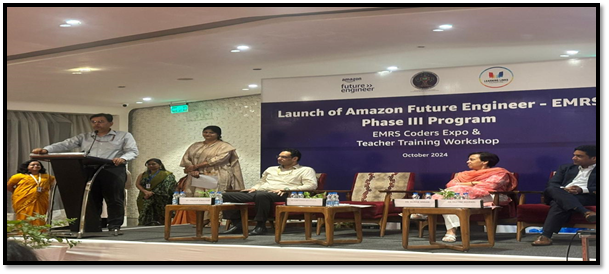
- 23 Oct 2024
In News:
- The National Education Society for Tribal Students (NESTS) launched the third phase of the Amazon Future Engineer Program in 50 Eklavya Model Residential Schools (EMRS).
- Schools involved are spread across Andhra Pradesh, Gujarat, Karnataka, Madhya Pradesh, Odisha, Telangana, and Tripura.
Program Focus Areas:
- Emerging Technologies: The third phase introduces tribal students to key areas like:
- Blockchain technology
- Artificial Intelligence (AI)
- Coding and block programming
- The program is designed to equip students with skills in computer science fundamentals.
Teacher Training:
- A four-day in-person training workshop for teachers was conducted to empower them with the skills necessary to teach emerging technologies effectively.
- Teachers also participated in the EMRS Coders Expo, showcasing top student coding projects from the previous academic year.
Target Audience:
- Students: The program targets students from grades 6 to 9. Class 10 students will participate in project-based virtual sessions aligned with the CBSE AI Skills Curriculum.
- The goal is to enhance students' understanding of computer science and technology and prepare them for STEM (Science, Technology, Engineering, Mathematics) careers.
Program Expansion:
- Future Plans: The program will be rolled out in the next phase to cover a total of 410 EMRSs across India.
- Impact: Over 7,000 students in grades 6 to 8 have already benefited from the program’s introduction to computer science and block programming.
Key Goals of the Program:
- Empower Tribal Students: Provide tribal students with modern technological skills to prepare them for future STEM careers.
- Capacity Building: Equip both teachers and students with the knowledge and skills to engage with emerging technologies.
- Fostering Technological Literacy: The initiative aims to foster technological literacy and modernize education in tribal areas.
Recognition:
- During the event, Top 3 Student Coding Projects were felicitated for their creativity and innovation.
- The Top 3 IT Teachers were also recognized for their dedication in guiding students through the program.
Partnership with Amazon:
- The program is a collaboration between NESTS and Amazon, showcasing a joint effort to improve educational access and technological skill development among tribal students.
National Water Awards 2023

- 21 Oct 2024
In News:
The Hon’ble President of India Smt. Droupadi Murmu will confer the 5th National Water Awards 2023 on October 22nd 2024 at Vigyan Bhawan, New Delhi.
Organizing Body:
- Ministry: Ministry of Jal Shakti
- Department: Department of Water Resources, River Development, and Ganga Rejuvenation (DoWR, RD & GR)
- Purpose: To recognize and honor individuals, organizations, and bodies that have made significant contributions to water conservation and management.
Award Categories
- Best State
- Best District
- Best Village Panchayat
- Best Urban Local Body
- Best School or College
- Best Industry
- Best Water User Association
- Best Institution (other than school or college)
- Best Civil Society Organization
Winners
- Best State:
- 1st Prize: Odisha
- 2nd Prize: Uttar Pradesh
- 3rd Prize (joint): Gujarat & Puducherry
- Other Awards: Winners in the remaining categories have been recognized, with citations, trophies, and cash prizes provided in certain categories.
Objectives of the National Water Awards
- Promote Water Conservation: Raise awareness about the importance of water and encourage effective water usage practices.
- Recognize Efforts: Celebrate the work of individuals, institutions, and organizations contributing to the government’s vision of a ‘Jal Samridh Bharat’ (Water-rich India).
- National Campaign: Under the guidance of Hon’ble Prime Minister, the Ministry of Jal Shakti has been working to spread awareness on water management and conservation through extensive national campaigns.
History and Background
- The National Water Awards (NWAs) were launched in 2018 by the DoWR, RD & GR to foster awareness and action on water-related issues.
- Awards were given for 2019, 2020, and 2022, but there were no awards in 2021 due to the COVID-19 pandemic.
- The awards aim to inspire best practices in water usage, conservation, and management across India, involving government bodies, industries, communities, and civil society.
Significance
- The National Water Awards serve as a platform to recognize the innovative initiatives taken by various stakeholders in addressing water challenges.
The awards contribute to furthering the government’s mission of achieving sustainable water management practices across the nation.
Queers can open Joint Bank Accounts
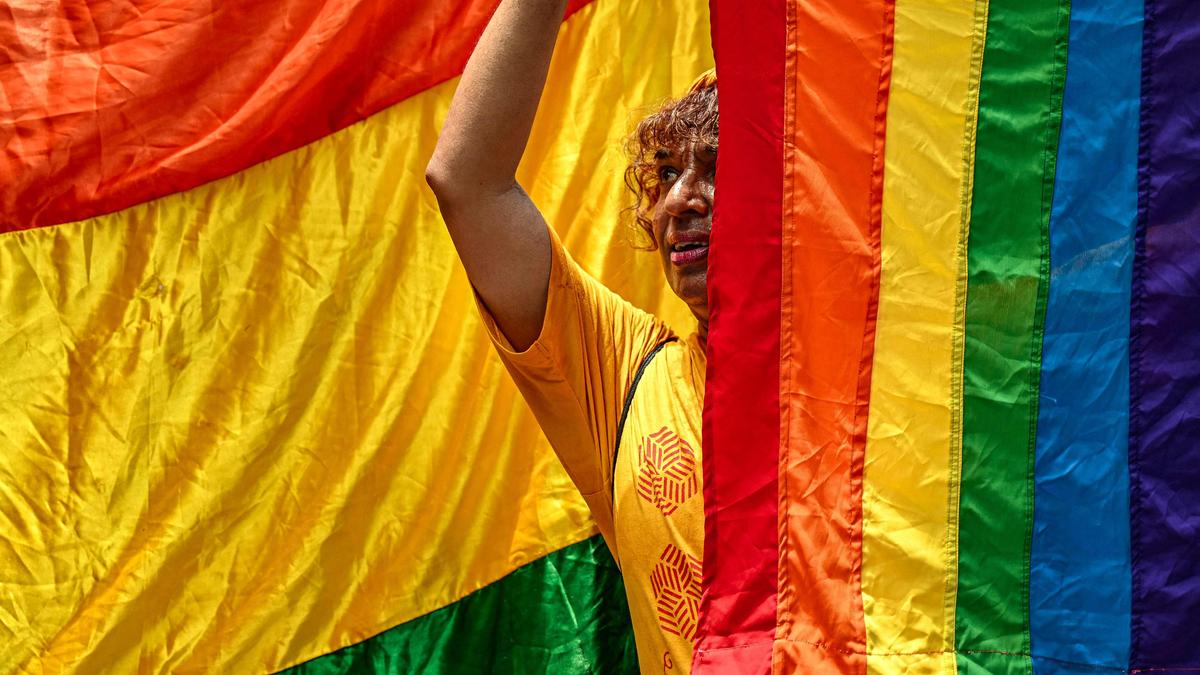
- 02 Sep 2024
In News:
Recently, the Union Government issued an advisory that LGBTQIA+ individuals and queer couples can open joint bank accounts. They can nominate each other as beneficiaries.
Key Details:
- Supreme Court Background:
- In October 2023, the Supreme Court of India urged the government to consider equal entitlements for partners in queer relationships.
- This was part of a judgment that did not recognize same-sex marriage but suggested enabling joint bank accounts and beneficiary nominations.
- Clarification from the Department of Financial Services:
- Issued on August 28, 2023, confirming no restrictions on opening joint accounts for the queer community.
- The Reserve Bank of India also clarified this to Scheduled Commercial Banks on August 21.
- Private Banks' Initiatives:
- Some banks, like Axis Bank, have been allowing joint accounts and beneficiary nominations for LGBTQIA+ couples since September 2021.
- Axis Bank expressed support for the Finance Ministry's advisory, noting alignment with its inclusive banking initiative.
- Government Committee Formation:
- In April 2023, a six-member committee was established to define entitlements for queer couples.
- Chaired by the Cabinet Secretary, it includes Secretaries from various ministries.
- The committee can co-opt experts if needed.
Unified Pension Scheme

- 01 Sep 2024
In News:
The new Unified Pension Scheme (UPS), set to launch on April 1, 2025, aims to provide improved old age income security. Around 23 lakh Central government employees will benefit from this new scheme, and those currently under the National Pension System (NPS) will have the option to switch to UPS. States can also adopt the UPS for their employees, but they will need to secure funding from their own resources.
Key Components of UPS
The UPS introduces several enhancements to pension benefits:
- Pension Benefits: Employees will receive half of their average basic pay over the final 12 months of service as a monthly pension after completing a minimum of 25 years of service. For those with less than 25 years, the pension will be proportionately reduced, with a minimum pension of ?10,000 for those with at least 10 years of service.
- Family Pension: A family pension equivalent to 60% of the employee's pension will be provided to dependents upon the employee's death.
- Inflation Adjustment: Pension incomes will be adjusted in line with the consumer price trends for industrial workers, similar to the dearness relief provided to current government employees.
- Superannuation Payout: In addition to gratuity, a lumpsum superannuation payout will be given, amounting to 1/10th of the employee’s monthly emoluments for every six months of service.
Differences from the Current System
The new UPS combines features from the Old Pension Scheme (OPS) and NPS:
- Old Pension Scheme (OPS): Employees who joined before January 1, 2004, are covered under OPS, which guarantees a pension of 50% of the last drawn salary, adjusted for dearness allowance. It also offers a family pension of 60% of the last drawn pension, with provisions for commutation and additional increases for pensioners over 80 years of age.
- National Pension System (NPS): Introduced in 2004, NPS replaced OPS for new employees, shifting from a defined benefits system to a defined contribution scheme. Employees and the employer contribute a percentage of the salary to market-linked securities, with no guaranteed pension amount, only a corpus that must be used to buy an annuity upon retirement.
The UPS aims to blend the certainty of OPS with the funded approach of NPS. While employees' contributions will be capped at 10% of their salary, the government will contribute 18.5%, with potential adjustments over time. The government will cover any shortfall between investment returns and pension promises.
Reasons for the Change
The transition to UPS addresses concerns raised by government employees and political pressure regarding the NPS. Employees have criticized NPS for its lack of guaranteed pension benefits compared to OPS. The issue has become politically significant, with opposition parties promising to revert to OPS in various states.
In March 2023, Finance Minister Nirmala Sitharaman announced a review of NPS led by former Finance Secretary T.V. Somanathan. Though the review’s findings are yet to be made public, the introduction of UPS reflects a compromise balancing employee expectations with fiscal prudence.
Reactions and Future Impact
Central government employees generally welcome the UPS, recognizing it as a step toward addressing the shortcomings of NPS. However, there are concerns about the contributory nature of UPS and the absence of a commutation option like in OPS. Economists are analyzing the scheme's financial implications, with an expected additional cost of ?7,050 crore this year for the government. Future pension payouts may increase but are anticipated to be manageable with higher revenue growth.
The UPS marks a significant shift in pension policy, aiming to provide greater financial security for government employees while managing fiscal responsibilities.
SUPREME COURT RULING ON CHILD SEXUAL EXPLOITATIVE MATERIAL: KEY HIGHLIGHTS
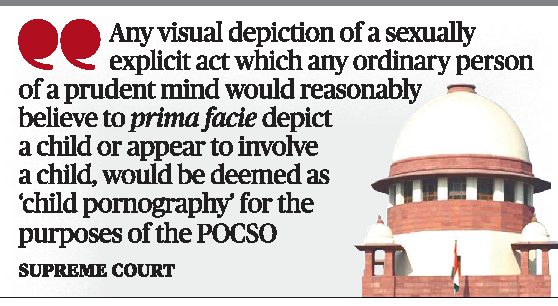
- 24 Sep 2024
Overview of the Ruling
- Date: Recent ruling by the Supreme Court of India.
- Context: Determined that viewing, downloading, storing, or distributing material involving child sexual exploitation constitutes a criminal offense under the POCSO Act and the Information Technology Act.
- Appeal Background: Decision overturned a Madras High Court ruling that deemed private viewing of such material non-criminal.
Terminology and Legislative Recommendations
- Terminology Change: Supreme Court advocates replacing “child pornography” with “Child Sexual Exploitative and Abuse Material” (CSEAM) to avoid trivialization of the crime.
- Amendment Call: Court urged Parliament to amend the POCSO Act and advised promulgating an ordinance for immediate effect.
Key Highlights of the Ruling
- Redefinition of Terminology: Emphasizes that "pornography" may imply consensual acts, misrepresenting the nature of child exploitation.
- Expansion of Section 15 of the POCSO Act:
- Possession Without Reporting: Individuals must delete or report any stored CSEAM; failure results in penalties.
- Intent to Transmit: Possessing CSEAM with intent to share, barring reporting, is punishable.
- Commercial Possession: Storing CSEAM for commercial purposes faces the strictest penalties.
- Concept of Inchoate Offenses: Classifies offenses related to CSEAM as preparatory actions towards further crimes.
- Redefinition of Possession:
- Includes "constructive possession," where individuals can be liable without direct physical possession.
- Watching CSEAM online without downloading can still be deemed possession.
- Educational Reforms:
- Court urged for comprehensive sex education to counter stigma and misconceptions.
- Curriculum should cover consent, healthy relationships, and respect for diversity.
- Awareness of the POCSO Act: Central and state governments are mandated to promote awareness, supported by the National Commission for Protection of Child Rights (NCPCR).
- Formation of Expert Committee: To develop programs for health and sex education while increasing POCSO awareness among children.
- Victim Support and Awareness: Emphasized the need for psychological support, counseling, and educational assistance for victims.
Status of Crimes Against Children
- Increasing Incidents: India leads in online child sexual abuse imagery, with 25,000 uploads reported from April to August 2024.
- Geographical Distribution: Major uploads identified in Delhi, Maharashtra, Gujarat, Uttar Pradesh, and West Bengal.
- Rising Cases: From 331 cases in 2017 to 781 in 2018, with 1,171 cases of inappropriate content dissemination reported in 2022.
Overview of the POCSO Act
- Purpose: Addresses sexual exploitation and abuse of children, defining a child as anyone under 18.
- Features:
- Gender-Neutral: Recognizes that both genders can be victims.
- Victim Confidentiality: Mandates protection of victims’ identities.
- Mandatory Reporting: Requires reporting of suspected abuse.
Gaps in Implementation
- Support Persons: Lack of designated support persons for victims; 96% of cases showed inadequate support during legal processes.
- POCSO Courts: Only 408 designated courts across 28 states as of 2022, leading to access issues.
- Special Prosecutors: Shortage of trained public prosecutors for POCSO cases.
Conclusion
- Call for Collaboration: Emphasizes the need for a coordinated approach involving educators, healthcare providers, and law enforcement to combat child sexual exploitation.
- Societal Responsibility: A shift in societal attitudes is essential for preventing victimization and ensuring recovery for victims.
PRADHAN MANTRI JANJATIYA UNNAT GRAM ABHIYAN
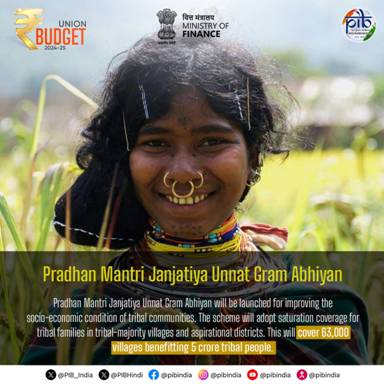
- 20 Sep 2024
In News:
The Union Cabinet, chaired by Prime Minister Narendra Modi, approved the Pradhan Mantri Janjatiya Unnat Gram Abhiyan. This mission aims to enhance the socio-economic conditions of tribal communities by saturating more than 63,000 tribal-majority villages and aspirational districts with a total budget of ?79,156 crore.
Budget Breakdown
- Total Outlay: ?79,156 crore
- Central Share: ?56,333 crore
- State Share: ?22,823 crore
Target Beneficiaries
The initiative is expected to benefit over 5 crore tribal people across 549 districts and 2,740 blocks in 30 States/UTs.
Context
- India's Scheduled Tribe (ST) population stands at 10.45 crore, according to the 2011 Census, with more than 705 tribal communities often residing in remote areas. This mission builds upon the successes of the Pradhan Mantri Janjati Adivasi Nyaya Maha Abhiyan (PM-JANMAN), launched on November 15, 2023.
Mission Objectives
- The mission aims to address critical gaps in social infrastructure, health, education, and livelihood through a comprehensive approach involving 25 interventions across 17 ministries.
Key Goals and Interventions
Goal 1: Developing Enabling Infrastructure
- Housing: Provision of pucca houses under the PMAY (Gramin) for eligible households, along with access to tapped water and electricity.
- Village Infrastructure: Improvement of all-weather road connectivity, mobile connectivity, and educational and health infrastructure.
Goal 2: Promotion of Economic Empowerment
- Skill Development: Enhanced training and self-employment opportunities for ST youth through initiatives like the Skill India Mission and support for tribal marketing.
Goal 3: Universal Access to Good Education
- Education Initiatives: Increase the gross enrollment ratio in schools and higher education, along with setting up tribal hostels for students.
Goal 4: Healthy Lives and Dignified Ageing
- Health Access: Provision of quality health facilities, aiming to meet national standards in maternal and child health indicators through mobile medical units.
Innovative Schemes
- Tribal Home Stay Initiative: Promotion of 1,000 homestays in tribal areas to boost tourism and provide alternate livelihoods. Each household can receive up to ?5 lakh for construction and ?3 lakh for renovations.
- Sustainable Livelihood for FRA Holders: Focus on 22 lakh FRA patta holders, enhancing their rights and providing livelihood support through various government schemes.
- Improving Educational Infrastructure: Upgrading tribal residential schools and hostels to improve local educational resources and retention rates.
- Sickle Cell Disease Management: Establishing Centers of Competence for affordable diagnostic services and prenatal care in regions where the disease is prevalent.
- Tribal Multipurpose Marketing Centres (TMMCs): Setting up 100 TMMCs to improve marketing of tribal products and facilitate better prices for producers.
International Day of Democracy
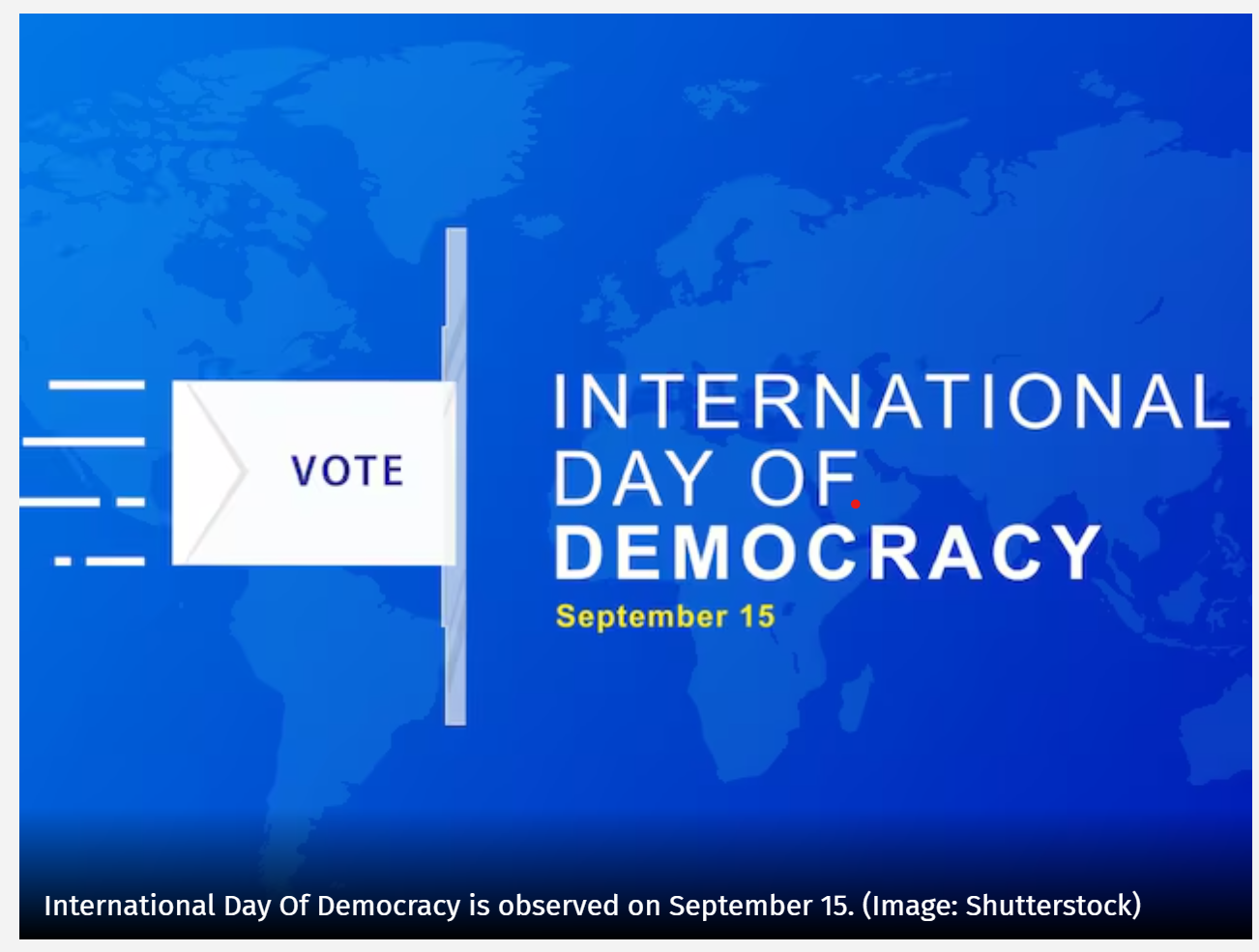
- 16 Sep 2024
In News:
Karnataka marked the 'International Day of Democracy' by forming a 'historic' 2,500-km-long human chain as a symbol of equality, unity, fraternity, and participative governance. The massive human chain, which according to the Karnataka government will be the "world's longest", is being formed across the state from Bidar to Chamarajanagar, covering all 31 districts.
Key Highlights:
- Democracy Day is an annual celebration observed on September 15.
- The United Nations General Assembly established this day in 2007 to emphasise the global significance of democracy. It serves as a reminder that democracy is not merely a fixed condition, but an ongoing pursuit. It calls for active engagement from international organizations, nation-states, civil society and people to pursue the democratic idea.
International Day of Democracy History
- The International Day of Democracy was accredited by the United Nations General Assembly (UNGA) on November 8, 2007, by passing a resolution entitled “Support by United Nations system of efforts of governments to promote and consolidate new or restored democracies.”
- September 15 was chosen to coincide with the anniversary of the Inter-Parliamentary Union’s Universal Declaration on Democracy, which was adopted in Geneva on September 15, 1997.
- This declaration outlines the tenets of democracy proclaiming that democracy is “a system of government based on the freely expressed will of the people to determine their own political, economic, social and cultural systems and their full participation, through free and fair periodic elections, in the composition of their representative government.”
- After the Universal Declaration on Democracy, Qatar spearheaded the campaign to observe an International Day of Democracy at the United Nations.
- The first-ever International Day of Democracy was held in 2008.
International Day of Democracy Significance
- The International Day of Democracy evaluates global democracy, emphasising that it requires commitment and engagement from the international community, the national state governments, civil societies and individuals.
- The day also reminds the nations of the need to uphold the principles of democracy such as the freedom of speech enshrined in Article 19 of the United Nations Universal Declaration of Human Rights.
What is Operation Kawach, the new ‘war on drugs’ waged by Delhi Police?
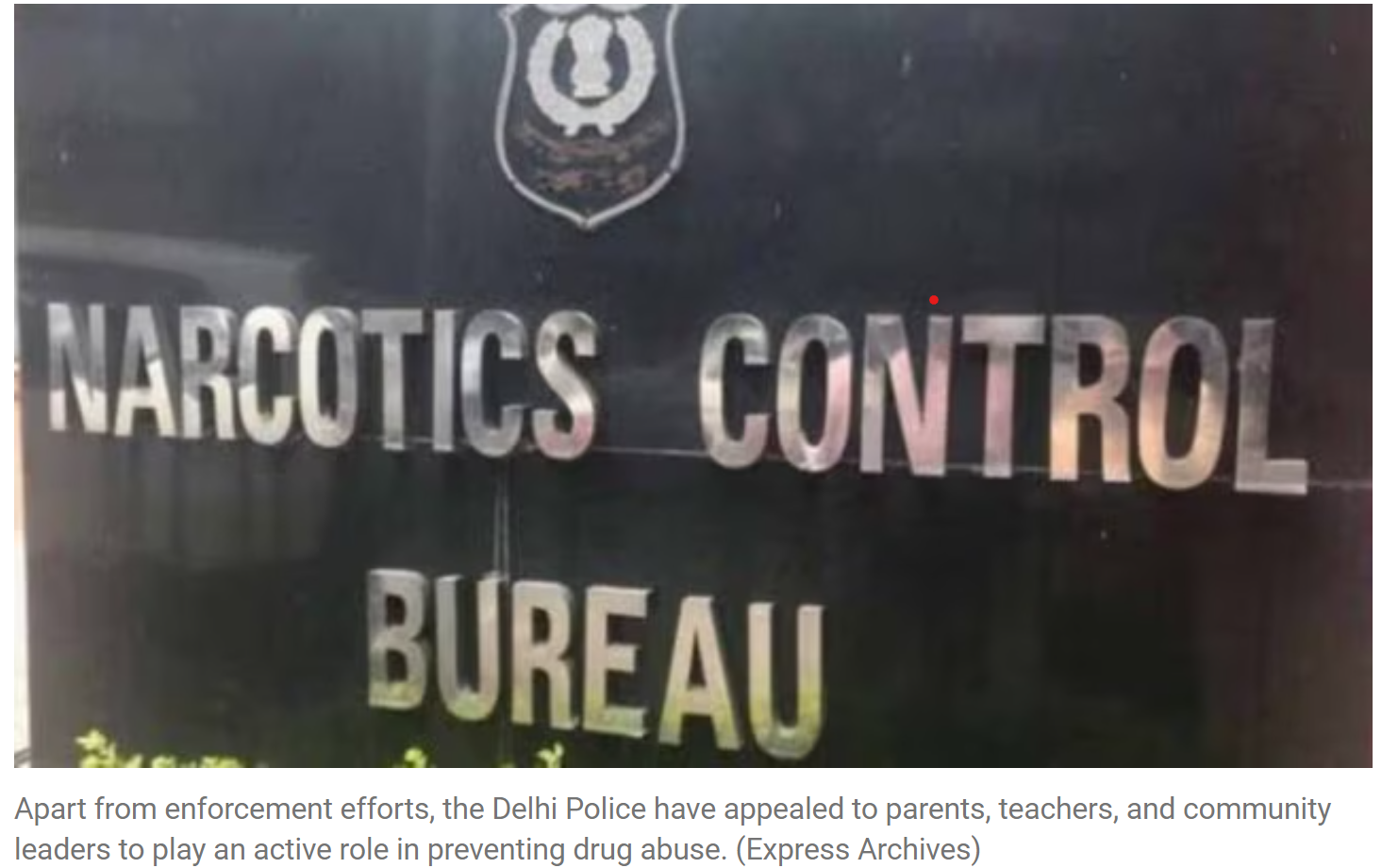
- 05 Sep 2024
Aimed at identifying and apprehending people involved in the trafficking and distribution of narcotics, 'Operation Kawach' is a joint initiative launched by the Crime Branch in coordination with all district units of the Delhi Police.
In a major crackdown on the menace of drugs in the national capital, the Crime Branch of the Delhi Police conducted widespread raids, swooping down on over 100 locations across Delhi. Earlier, raids conducted during the intervening night of May 12 and 13 had led to the arrest of 31 drug offenders in 30 cases under the Narcotic-Drugs and Psychotropic Substances Act 1985.
As many as 12 bootleggers were also arrested in six cases of the Excise Act. The operation also saw the seizure of 957.5 grams of heroin, 57.8 kilograms of marijuana and 782 bottles of illicit liquor.
What is Operation Kawach?
Aimed at identifying and apprehending people involved in the trafficking and distribution of narcotics, ‘Operation Kawach’ is a joint initiative launched by the Crime Branch in coordination with all district units of the Delhi Police. The initiative aims to combat the harmful influence of drug addiction on youth and children and underscores the authorities’ commitment to safeguarding the well-being of young individuals and curbing the distribution of illicit substances in educational settings.
Operation Kawach is primarily intended to save the youth from the menace of drugs. Although the focus is to take stringent action on the supply side, it is also appealed to society to create awareness and reduce the demand of drugs. The parents, teachers and the social reformers are specially requested to sensitise the youth about the grave consequences of drug addiction.
Operation Kawach: The story so far
According to the official, the joint operations, which utilised a variety of resources such as undercover officers, surveillance, canine support and intelligence gathering, targetted both street-level dealers and high-level traffickers and have both ‘top-to-bottom’ and ‘bottom-to-top’ approaches to effectively counter drug trafficking in the national capital.
In this year, Delhi Police has arrested 534 narco-offenders in 412 NDPS cases. Around 35 kg of heroin/smack, 15 kg of cocaine, 1,500 kg of ganja, 230 kg of opium, 10 kg of charas and 20 kg of poppy have been recovered during these operations.
e-Sankhyiki portal
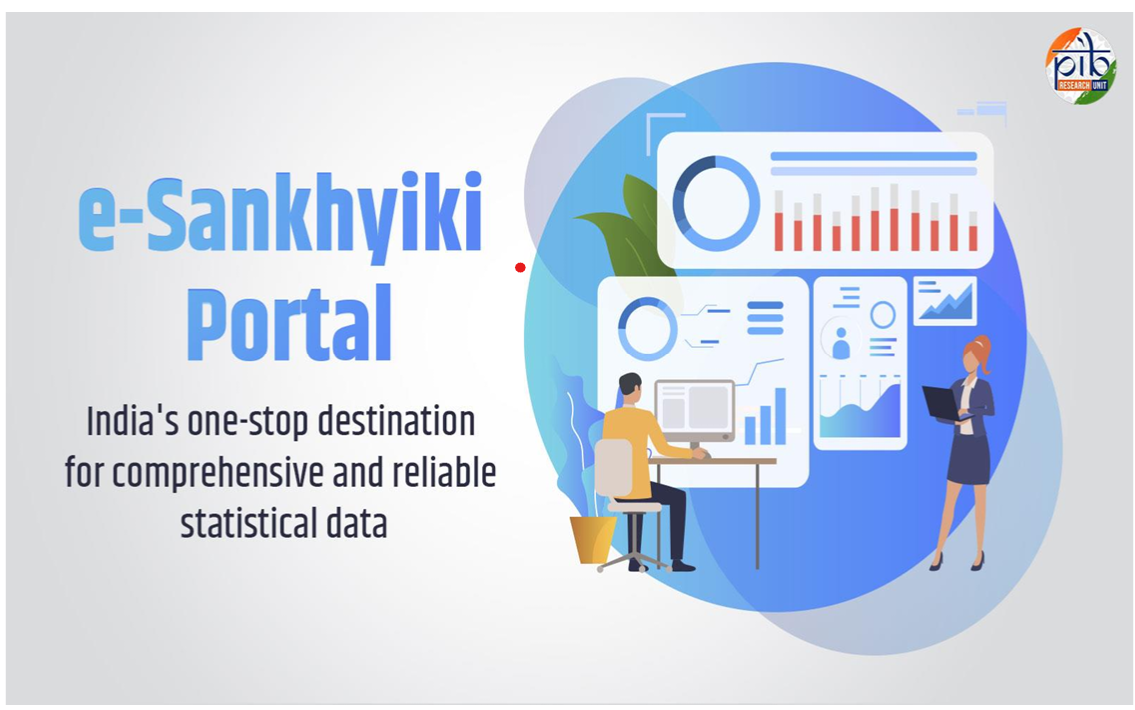
- 07 Sep 2024
In News:
The Ministry of Statistics and Programme Implementation (MoSPI) has launched e-Sankhyiki portal with the objective to establish a comprehensive data management and sharing system for ease of dissemination of official statistics in the country.
Key Highlights:
- Launched on National Statistics Day 2024, the e-Sankhyiki portal is designed to create a comprehensive system for managing and sharing data, facilitating the easy dissemination of official statistics across the country.
- The portal is also accessible at - https://esankhyiki.mospi.gov.in. It aims to provide timely and valuable data inputs for policymakers, researchers, and the general public.
- It provides time series data for key macroeconomic indicators, with features for filtering and visualising the data. Users can also download customised datasets and visualisations and access them through APIs, enhancing the data's reusability.
- It consists of two modules viz. Data Catalogue and Macro Indicators.
- Data Catalogue Module:
- This module catalogues the Ministry’s major data assets, simplifying users' access. It enables searching within datasets and tables, downloading relevant data, and enhancing its value and reusability.
- The Data Catalogue includes seven core data products:
- Consumer Price Index
- Index of Industrial Production
- National Accounts Statistics
- Periodic Labour Force Survey
- Annual Survey of Industries
- Household Consumption Expenditure Survey
- Multiple Indicator Survey.
- It currently hosts over 2,300 datasets, each accompanied by specific metadata and visualisations for user convenience.
- Macro Indicators module:
- This module provides time series data on key macro indicators, featuring tools for filtering and visualising data.
- It allows users to download custom datasets, generate visualisations, and share data through APIs, promoting greater reusability. The initial phase of this module covering data from the past decade includes four major MoSPI products:
- National Accounts Statistics
- Consumer Price Index
- Index of Industrial Production
- Annual Survey of Industries
- The portal currently features over 1.7 million records, providing access to extensive vital data.
- Data Catalogue Module:
Government Initiatives for Safe Data Dissemination
- In response to the rapid data expansion, the Government of India has instituted robust data safety measures. These include storing data in the cloud facilities provided by the National Informatics Centre (NIC), conducting comprehensive security audits of applications, and implementing Secure Sockets Layer (SSL) technology for domain protection.
- Additionally, the government has focused on vulnerability assessments and ensured compliance with guidelines issued by organisations such as NIC and the Indian Computer Emergency Response Team (CERT-In).
- In addition , CERT-In under the Ministry of Electronics and Information technology (MeitY) also undertakes various activities like issuance of advisories and guidelines for cyber/information security, conduct of sensitization programmes/trainings/workshops, operating Cyber Threat exchange platform & Cyber Swachhta Kendra, formulation of a Cyber Crisis Management Plan, setting up of National Cyber Coordination Centre (NCCC) and empanelment of security auditing organisations etc. for data safety.
National Centre for Good Governance (NCGG)
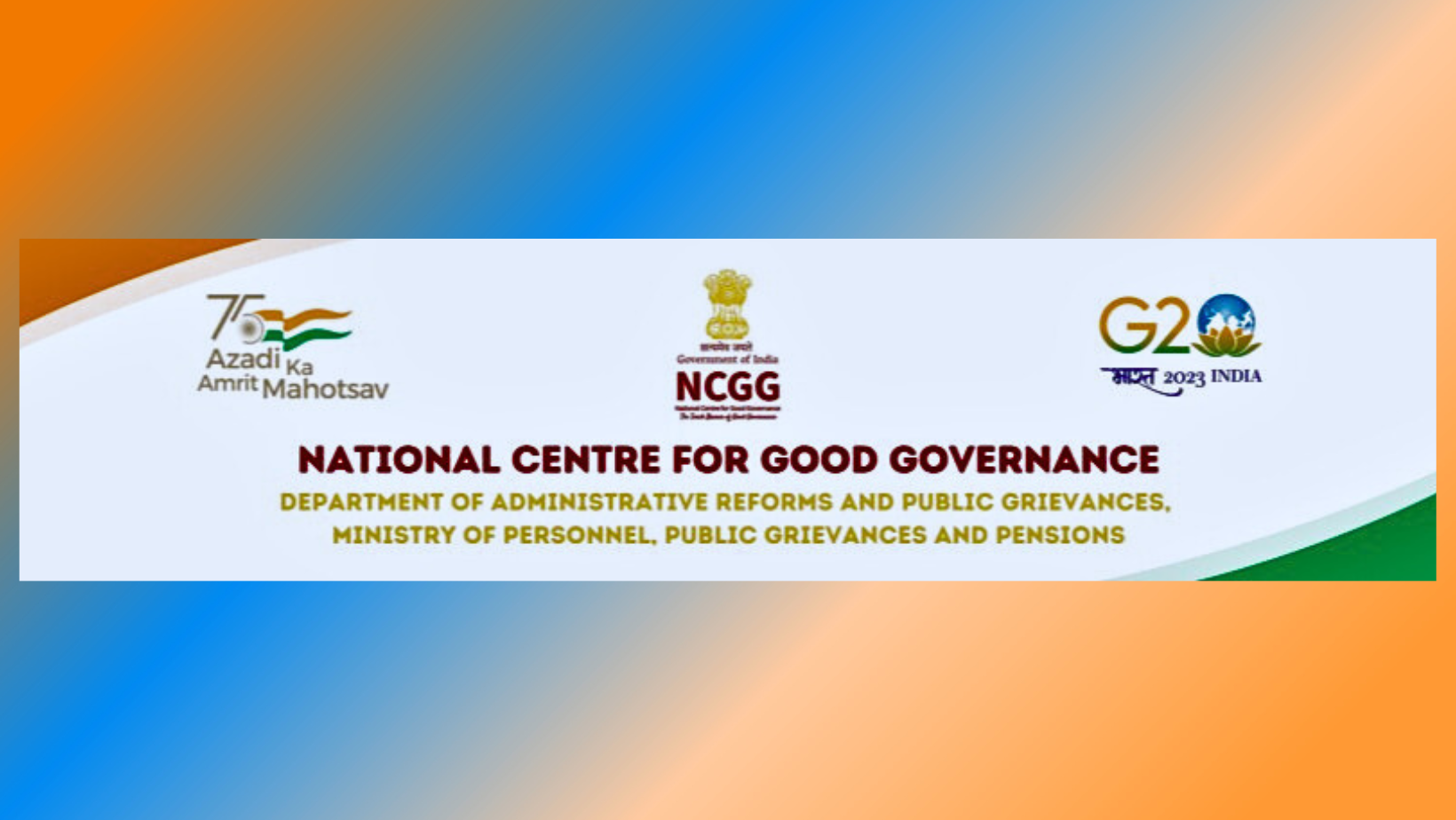
- 29 Apr 2024
Why is it in the News?
A central government delegation is on a three-day visit to Bangladesh beginning Sunday to further boost bilateral ties on governance matters, according to an official statement.
About the National Centre for Good Governance:
- The National Centre for Good Governance (NCGG) was set up in 2014 by the Government of India as an apex–level autonomous institution under the Ministry of Personnel, Public Grievances and Pensions.
- The Centre traces its origin to the National Institute of Administrative Research (NIAR), which was set up in 1995 by the Lal Bahadur Shastri National Academy of Administration (LBSNAA), the Government of India's topmost training institute for civil services.
- NIAR was subsequently rechristened and subsumed into NCGG.
- NCGG deals with a gamut of governance issues from local, state to national levels, across all sectors.
- The Centre is mandated to work in the areas of governance, policy reforms, capacity building, and training of civil servants and technocrats of India and other developing countries.
- It also works as a think tank.
- Since its inception, the Centre has been extensively working in areas such as primary and elementary education, decentralized planning at district and block levels, capacity building of Panchayat Raj Institutions (PRIs), participatory models of learning and action, rural development, cooperatives, and public sector management, etc.
- In addition, it focuses on issues related to good governance, social accountability, water, sanitation, and hygiene (WASH), among other sectors.
- The Centre encapsulates the essence of good governance and weighs on the importance of the rule of law, bringing in transparency, working to promote public participation in governance, service delivery, and reforms, as well as in developing accountable institutions, access to information, etc.
Worldwide Governance Indicators (Indian Express)
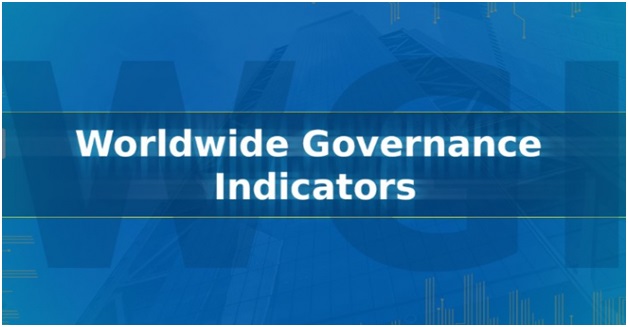
- 17 Nov 2023
Why in the News?
The Indian Chief Economic Adviser recently expressed worry about credit rating agencies using the World Bank's Worldwide Governance Indicators to assess ratings, particularly for developing countries.
About Worldwide Governance Indicators:
- The Worldwide Governance Indicators is based on a long-standing research programme of The World Bank.
- It was first established in 1996 to measure the quality of governance in over 200 countries.
- These aggregate indicators are derived from over 30 individual data sources produced by a variety of survey institutes, think tanks, non-governmental organizations, international organizations, and private sector firms.
- The indicators capture six key dimensions of governance including:
- Voice and Accountability
- Political Stability and Absence of Violence
- Government Effectiveness
- Regulatory Quality
- Rule of Law
- Control of Corruption
- According to The World Bank, corruption is the single greatest obstacle to economic and social development.
About The World Bank:
- The World Bank is an international financial institution that provides financial and technical assistance to developing countries around the world.
- Its goals are to reduce poverty and support development.
- It helps by offering a growing range of free tools, research, and knowledge to help people address the world’s development challenges, for instance, comprehensive, downloadable indicators about development in countries around the globe.
